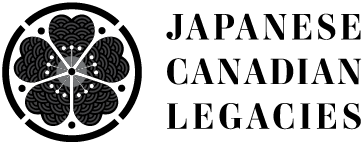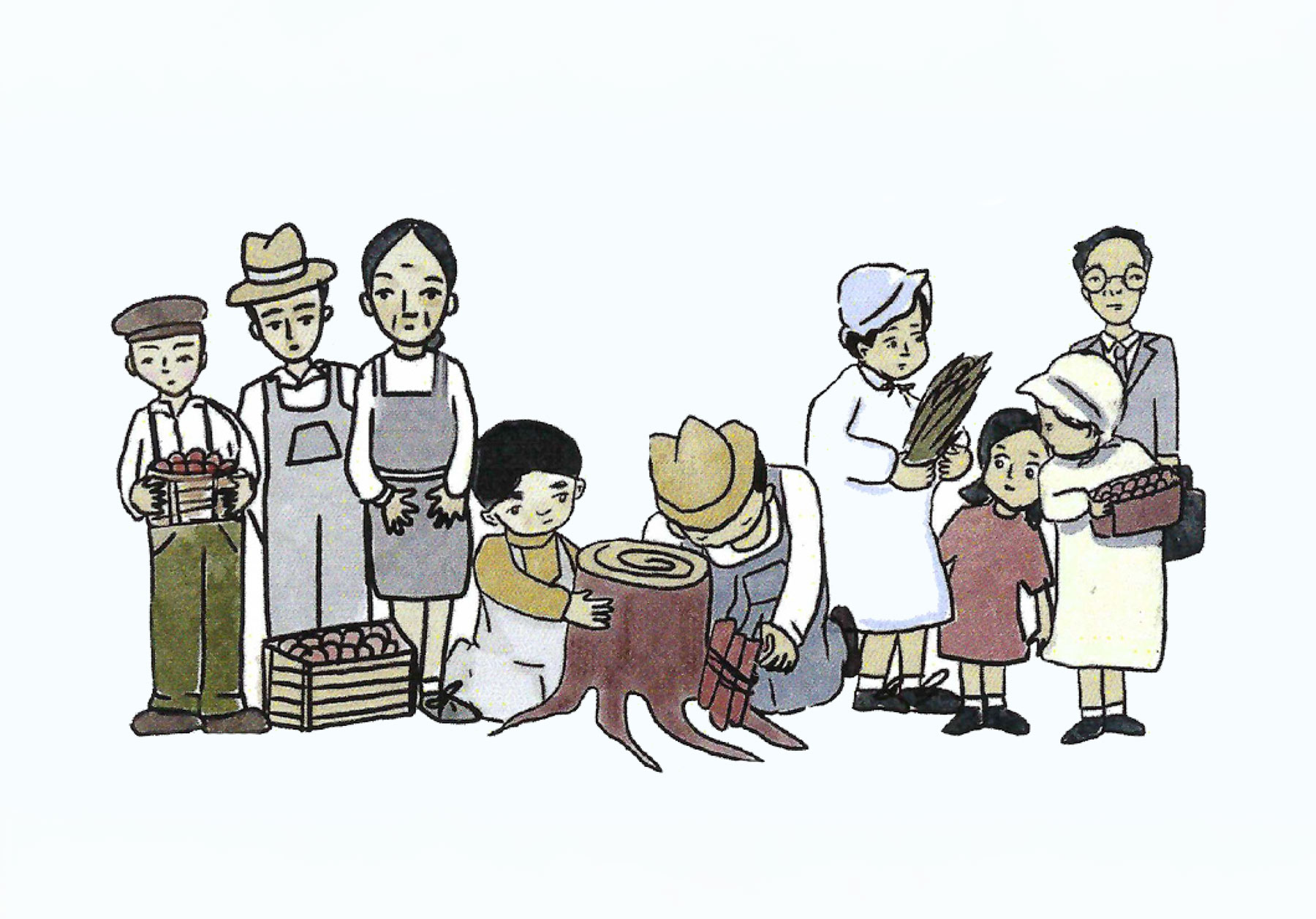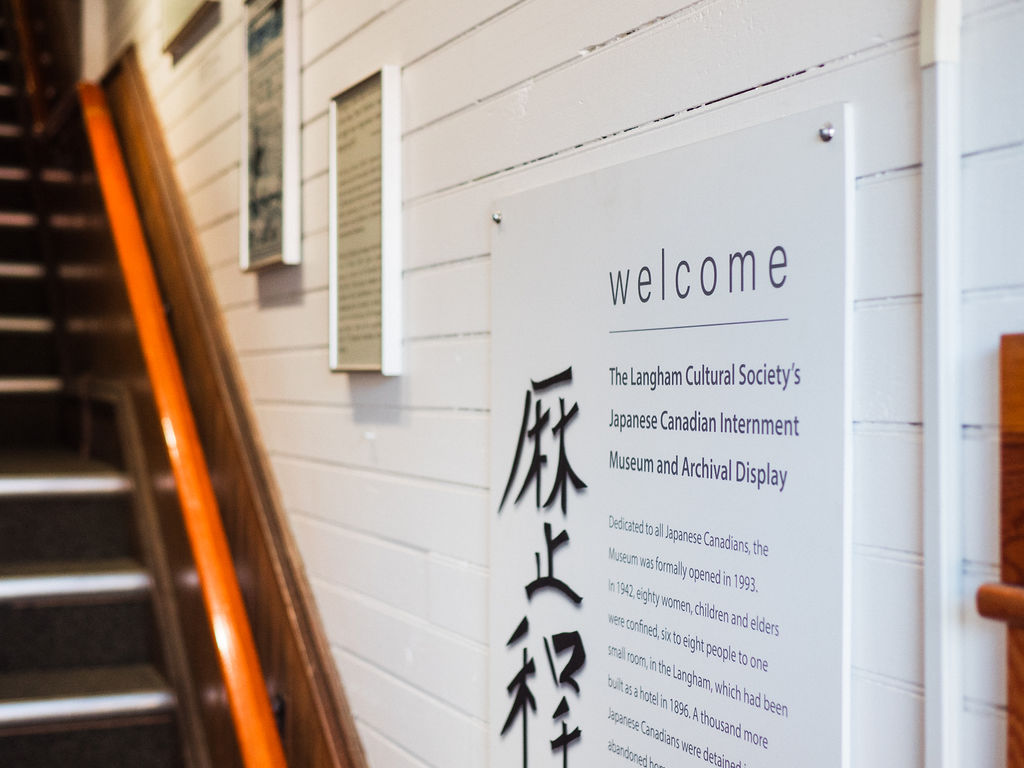Heritage Preservation
BC Heritage Sites
Japanese Canadians began arriving on the coast shortly after BC joined Confederation in 1871. Unable to vote and barred from many professions, many turned to the resource sector, finding work in forestry, mining, farming and, notably, fishing, establishing communities, homes and livelihoods throughout the province, wherever they could find work.
Wherever Japanese Canadians settled up and down the west coast, retail/mercantile enterprises, lodging houses, language schools, churches and temples sprang up to create community, underpinning the vibrant economic life and culture of Japanese Canadians throughout the province. There were thriving farms on the coastal islands, in the Fraser Valley, the Okanagan and elsewhere. Steveston was a well-known fishing/boat-building/canning centre, one of many coastal communities of Japanese Canadians, including Prince Rupert and communities even further north.
Japanese Canadians contributed greatly to the economic growth of the province up until late 1941, with the Japanese attack on Pearl Harbor. Almost overnight, entire communities disappeared, livelihoods destroyed, families torn apart, schools half emptied. All property, homes, businesses, vehicle and boats were confiscated and later sold at bargain-sale prices. All 22,000 men, women and children of Japanese heritage, regardless of birthplace or citizenship, were ordered to leave a 100-mile coastal protected zone, taking only what they carry, sent to road camps and internment camps in the interior of BC, to sugar beet farms in the prairies.
As the war drew to a close, a second uprooting erased Japanese Canadians almost entirely from the province, exiling almost 4,000 Japanese Canadians to Japan in 1946, and pushing the rest east of the Rockies. Mass dispossession continued for a decade, into the early 1950s. The community was effectively broken apart, those who remained in Canada scattered across the country, forced to start over from nothing.
BC Heritage Sites is a key program of Japanese Canadian Legacies, developed to assist local communities in British Columbia in promoting public awareness of pre-war Japanese Canadian history through interpretive heritage projects at sites of ancestral communities and other places of historical significance including sites of wartime incarceration.
Projects to commemorate such places will have an enduring value. This fund is intended to help make some of these now mostly invisible sites visible to new generations of British Columbians so that they may learn to appreciate the lasting legacy of Japanese Canadians in British Columbia. These legacies include state-sanctioned racism that led to unjust treatment before, during and after the war. Initiatives may include projects that promote memorialization, conservation and/or education of Japanese Canadian history tailored to a region within the province of British Columbia.
For Japanese Canadians, it is important to our community, and to our collective healing, that we preserve these stories and acknowledge the places that, prior to uprooting, the Japanese Canadian community called home – the places where we flourished and raised our families and built our businesses, and the places where we experienced and overcame adversity. Commemorating and celebrating our historic places — most of which remain under-recognized and underserved — is long overdue. It is at the heart of our community’s work to reclaim our history and rebuild connections to our heritage in British Columbia.
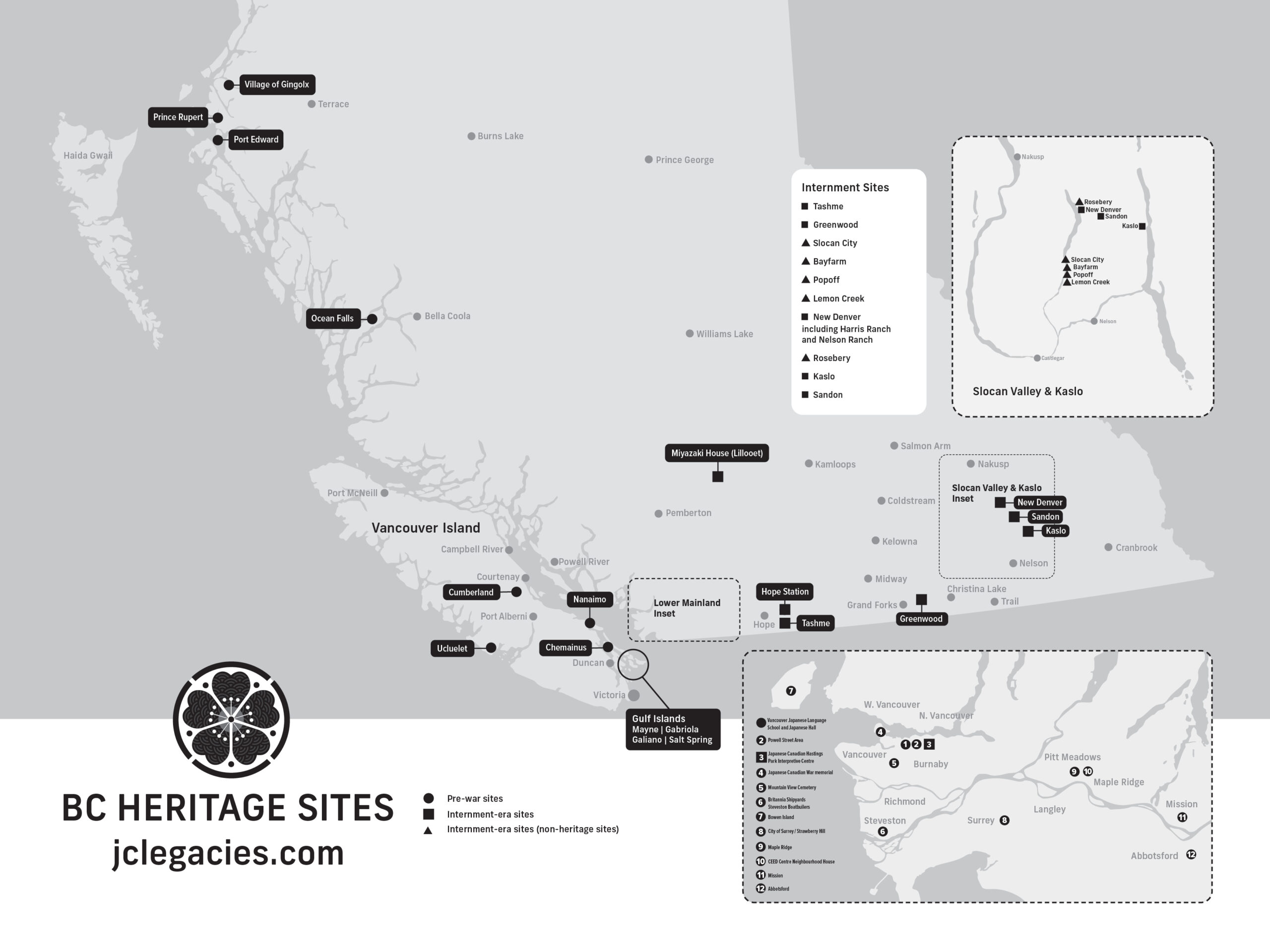
BC Heritage Sites Directory
Northern BC
Port Edward Historical Society
Ocean Falls Improvement District
City of Prince Rupert
Lower Mainland
Maple Ridge CEED Centre Society
City of Maple Ridge
Vancouver – Japanese Canadian War Memorial
Vancouver Japanese Language School
Vancouver – Mountain View Cemetery
City of Mission
City of Surrey
Heritage Abbotsford Society
City of Richmond
Bowen Island Museum & Archives
Vancouver Island & Gulf Islands
Galiano Island – Galiano Club
Gabriola Historical & Museum Society
Mayne Island Agricultural Society
Japanese Garden Society of Salt Spring Island
City of Nanaimo
Ucluelet & Area Historical Society
Village of Cumberland
Chemainus Festival of Murals Society
Internment-era Sites
Sandon Historical Society
Kaslo – Langham Cultural Society
Sunshine Valley – Tashme Historical Society
City of Greenwood
Hope Mountain Centre for Outdoor Learning – Hope Station
District of Lillooet – Miyazaki House
Sites were chosen based on their significance to the prewar and wartime communities, also taking into account the infrastructure in place to maintain them.
Says JCLS CEO Susanne Tabata, “For Japanese Canadians, it is important to our community, and to our collective healing that we preserve these stories and acknowledge the places that, prior to uprooting, the Japanese Canadian community called home – the places where we flourished and raised our families and built our businesses, and the places where we experienced and overcame adversity. Commemorating and celebrating our historic places — most of which remain under-recognized and under-served — is long overdue. It is at the heart of our community’s work to reclaim our history and rebuild connections to our heritage in British Columbia.”
We thank co-coordinator Linda Kawamoto Reid who led the four-month research and discovery phase, bringing decades of knowledge to the program. A huge debt of gratitude goes to the assessment team of Nao Seko, Mike Aoki, Mike Matsuo, Kim Kalanj, and Yasushi Oki, who for over three months assessed feasibility and risk management of all applications. Thank you to Jeff Masuda, Sherri Kajiwara, Sachiko Okuda for reviewing draft guidelines written by Eiko Eby. The Heritage Sites Team of Susanne Tabata, Linda Kawamoto Reid, and Lane McGarrity looks forward to sharing the progress of these important sites so that we can begin the process of reclaiming our unique history and narrative.
BC Heritage Sites Team


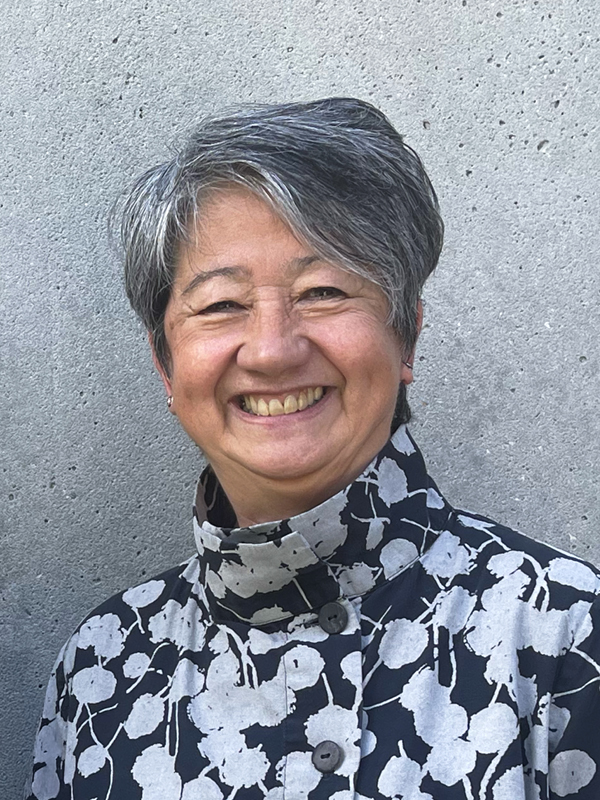
BC Heritage Sites Assessment Team





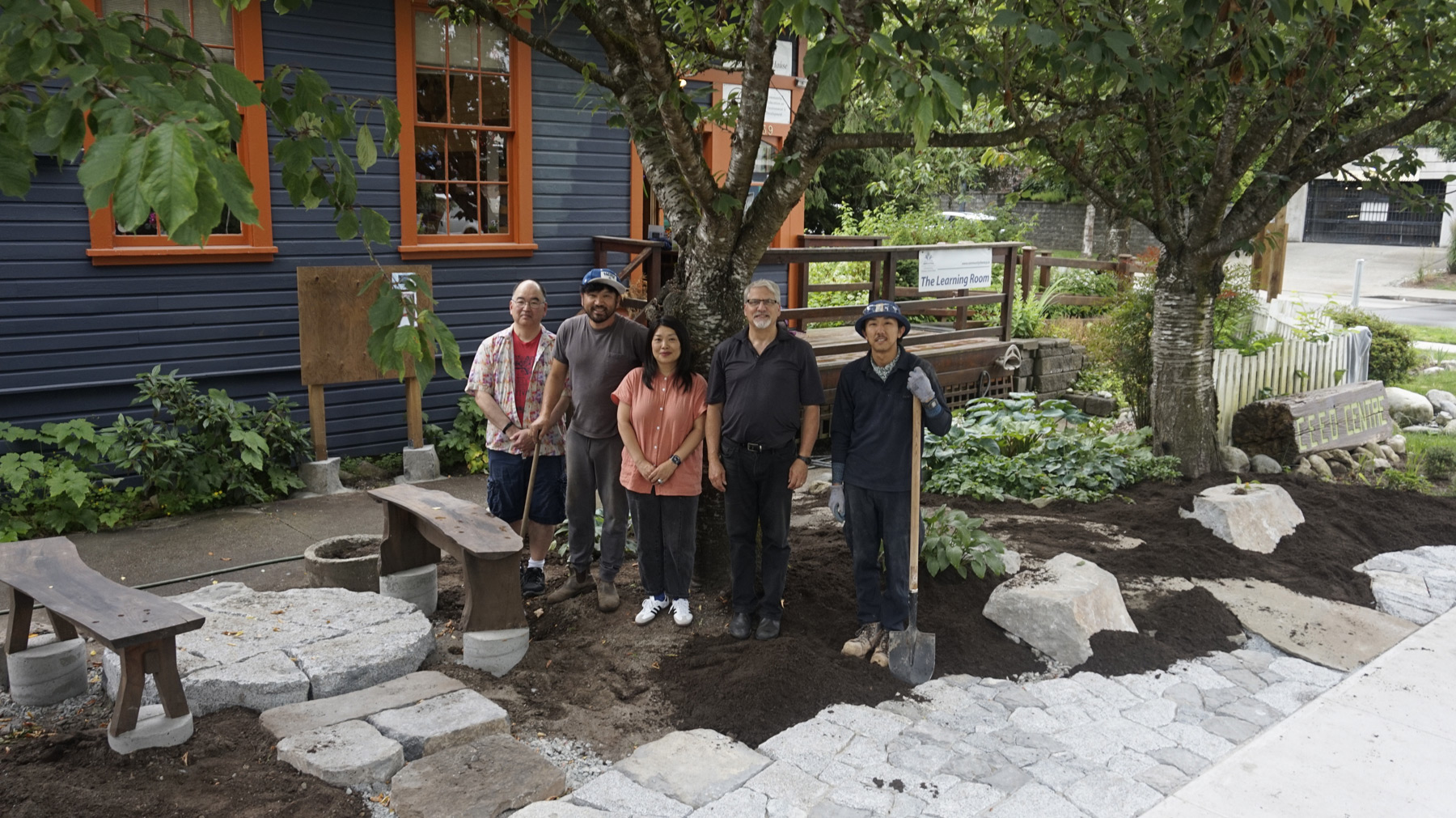
Maple Ridge CEED Centre Society
Maple Ridge Japanese Canadian Farming Legacy Project
The CEED Centre Neighbourhood House building was part of the Haney Nokai complex that served as a social centre for the Maple Ridge farming community in the pre-War era. This project turns the building into a permanent interpretive exhibit that tells the tale of a once-thriving community that was reduced by the Internment of Japanese Canadians and all but disappeared from view until now. The walls and ceilings portray life on the 230 Japanese Canadian farms and a Japanese style rock garden and signs on the exterior help to tell the tale and remind us with this history how to go forward in a good way.
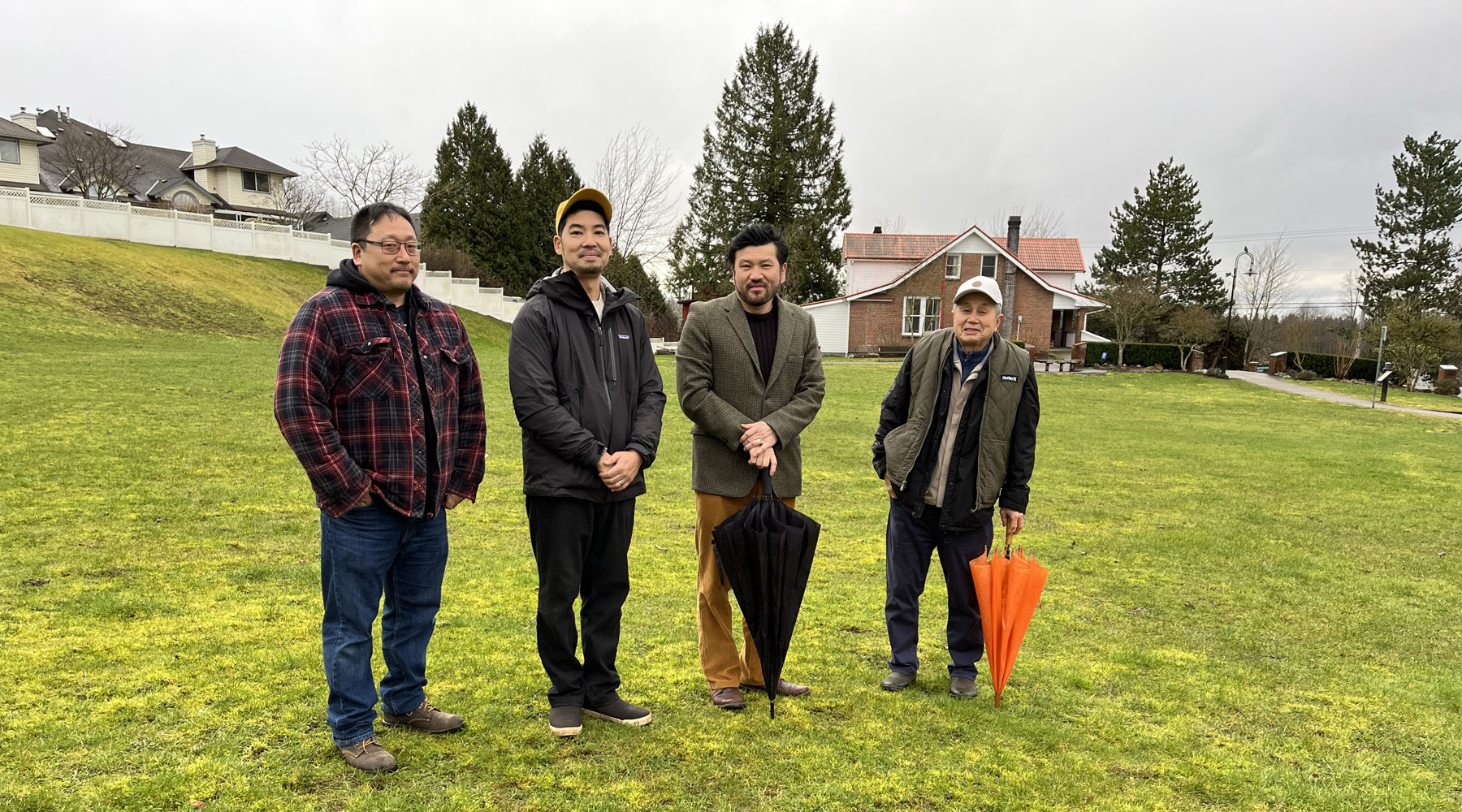
City of Maple Ridge
Japanese Garden at Jim Hadgkiss Park, Maple Ridge
In collaboration with the Vancouver Japanese Gardeners Association, the City of Maple Ridge will develop a Japanese Garden in Jim Hadgkiss Park to recognize a place of significance and promote public awareness of pre-war and wartime Japanese Canadian history in Maple Ridge. The Japanese garden may include walking pathways, footbridges, a water feature, seating, and trees and shrubs, and located next to the Maple Ridge Museum and Archives with its extensive collection and exhibits on early Japanese Canadian history in Maple Ridge.
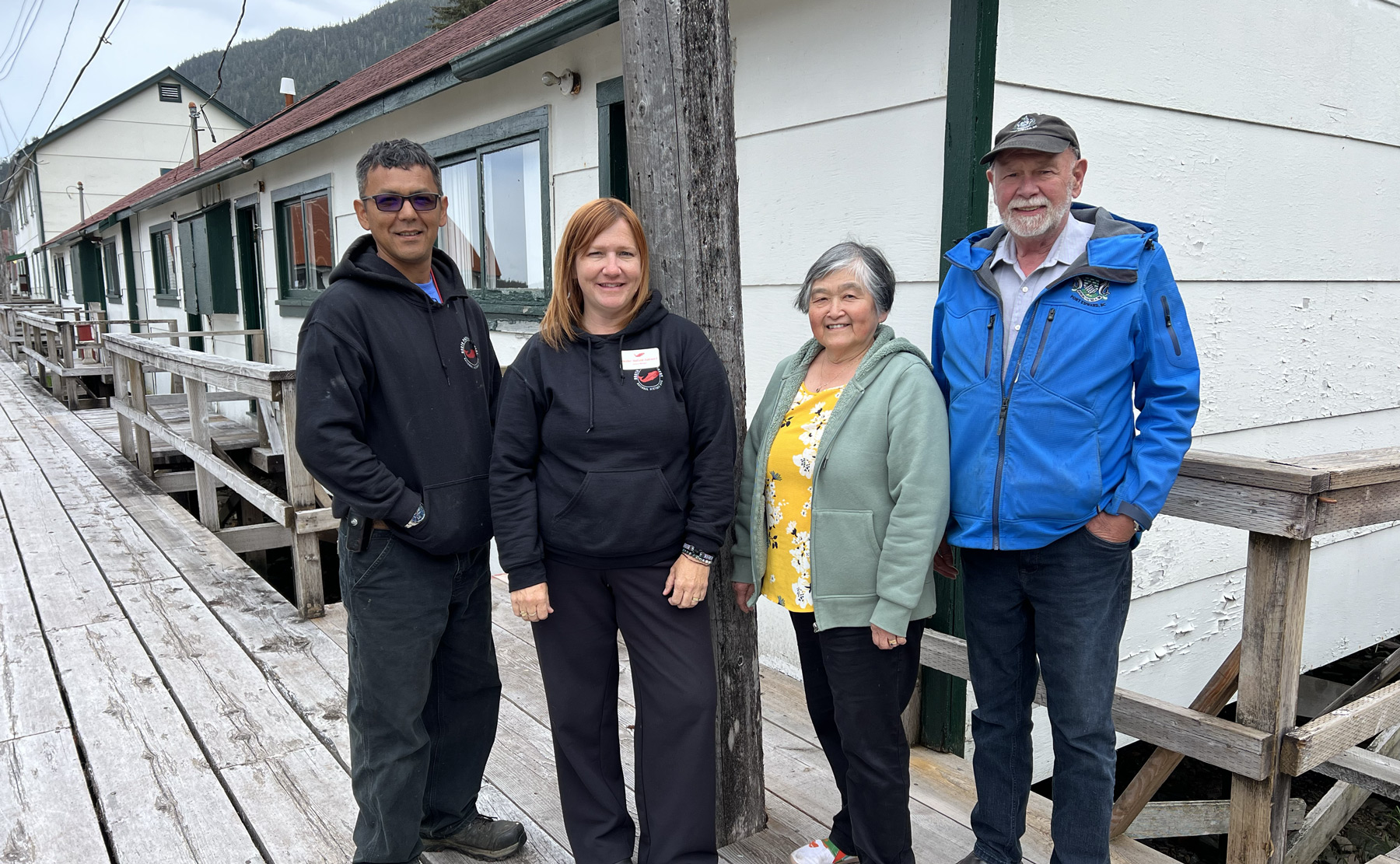
Port Edward Historical Society
North Pacific Cannery Triplex
This project consists of the restoration of Japanese Canadian housing units at North Pacific Cannery (NPC). There are two triplexes at NPC built in 1965 to house Japanese Canadian fishermen and their families. We will restore three units in one triplex to their original state to be used as short term rental units. One unit in the other triplex will be set up as an interpretive display of the history of Japanese Canadians at the cannery.
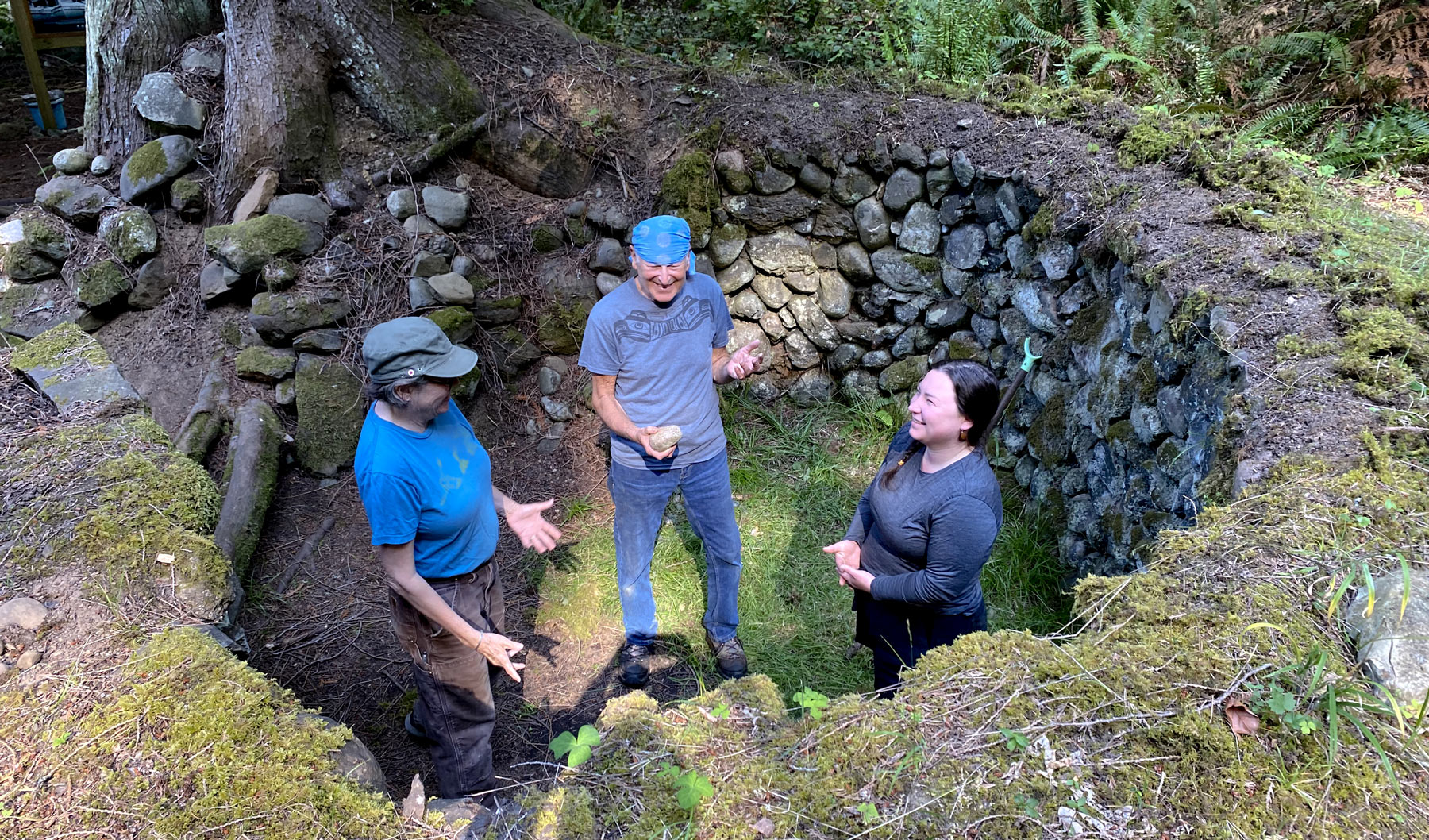
Galiano Island – Galiano Club
Passing the Torch
Steve Nemtin, a Galiano resident, restored the Charcoal Pit Kiln in The Bluffs park on Galiano Island and has maintained it for the past 20 years. This project entails him training a new generation of volunteers to continue with this work. In addition, the project involves improving access to the Pit Kiln by working on the two trails and by producing a brochure for distribution to the public.
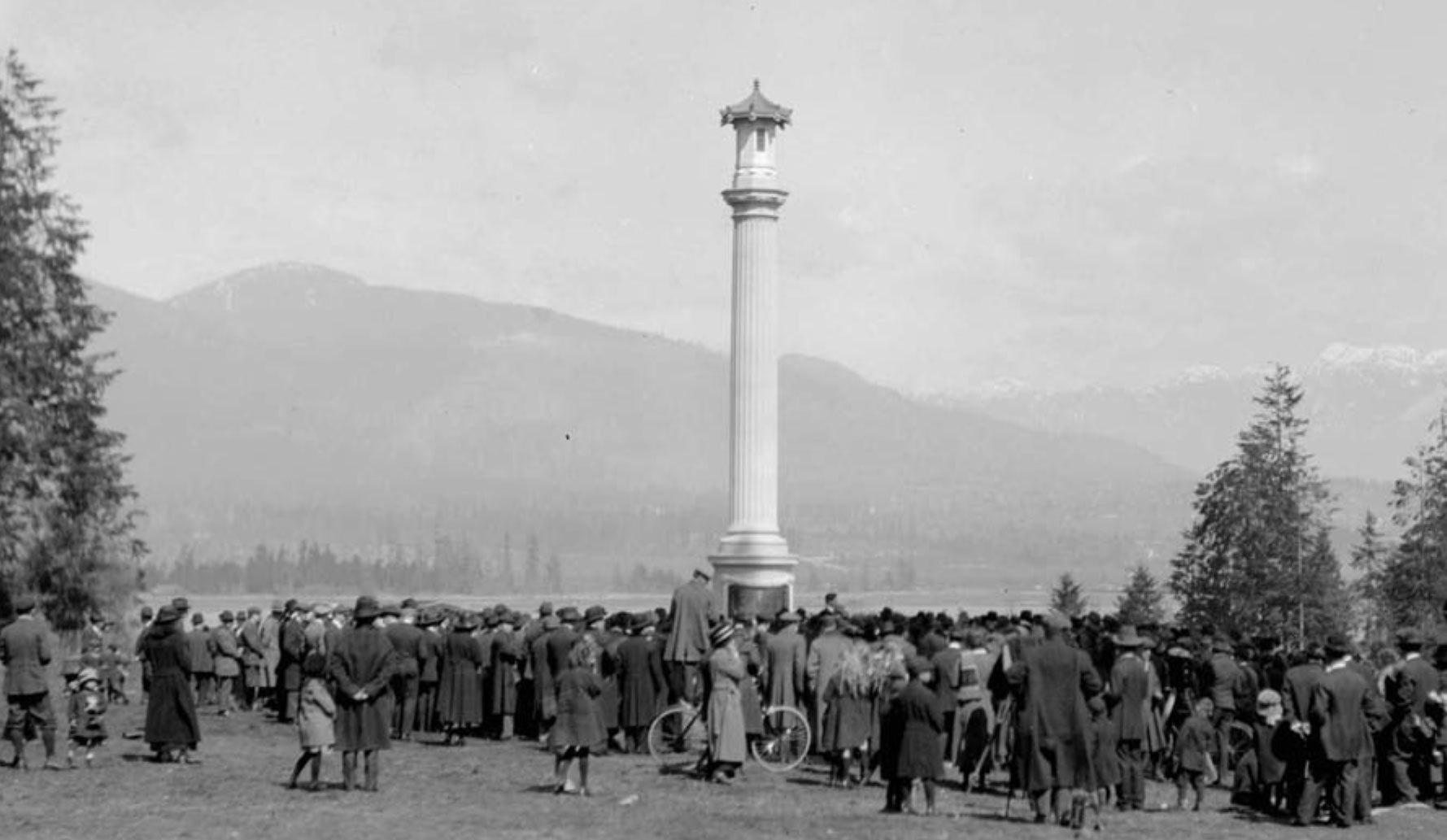
Vancouver | Japanese Canadian War Memorial
Japanese Canadian War Memorial Refurbishment Project
The Japanese Canadian War Memorial Refurbishment Project will renew a beacon of Japanese Canadian military history through cenotaph refurbishment by Van den Kerkhof & Son Masonry. We will coordinate improved signage and lighting with Stanley Park management to uplevel the visitor experience. When we are done, we will celebrate with the community to share the legacy.
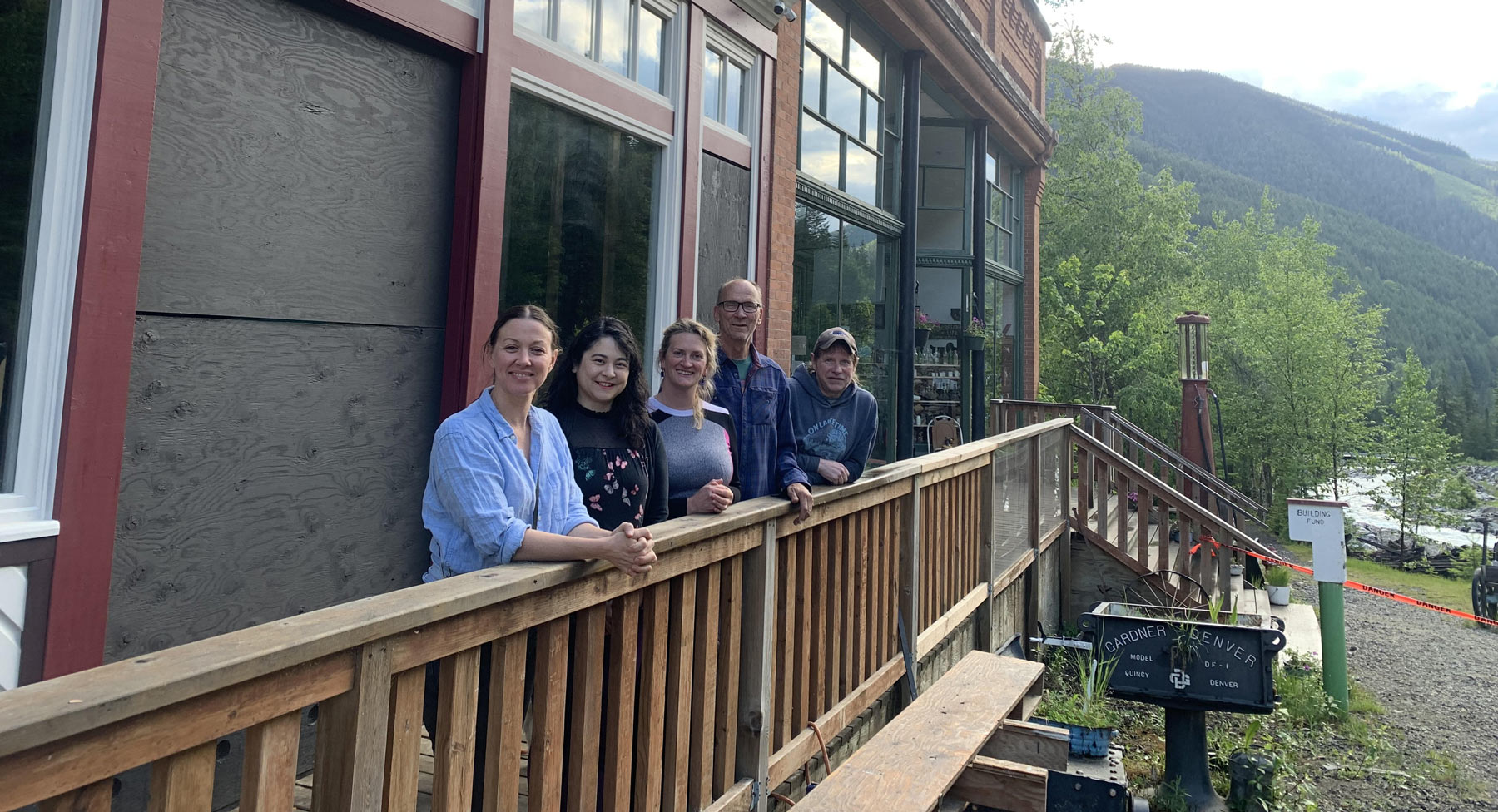
Sandon Historical Society
Window to the Past – Japanese Canadians in Sandon
The window of the newly renovated Burns Atherton building will display stories of the Japanese Canadian residents of Sandon who were interned there from 1942 – 1944. The permanent exhibit can be viewed year round from the outside and will share the history of displacement from the West Coast, the establishment of community life in Sandon, and eventual departure. It will incorporate the site’s Japanese Canadian history into what visitors can learn about Sandon by visiting the historic ghost town.
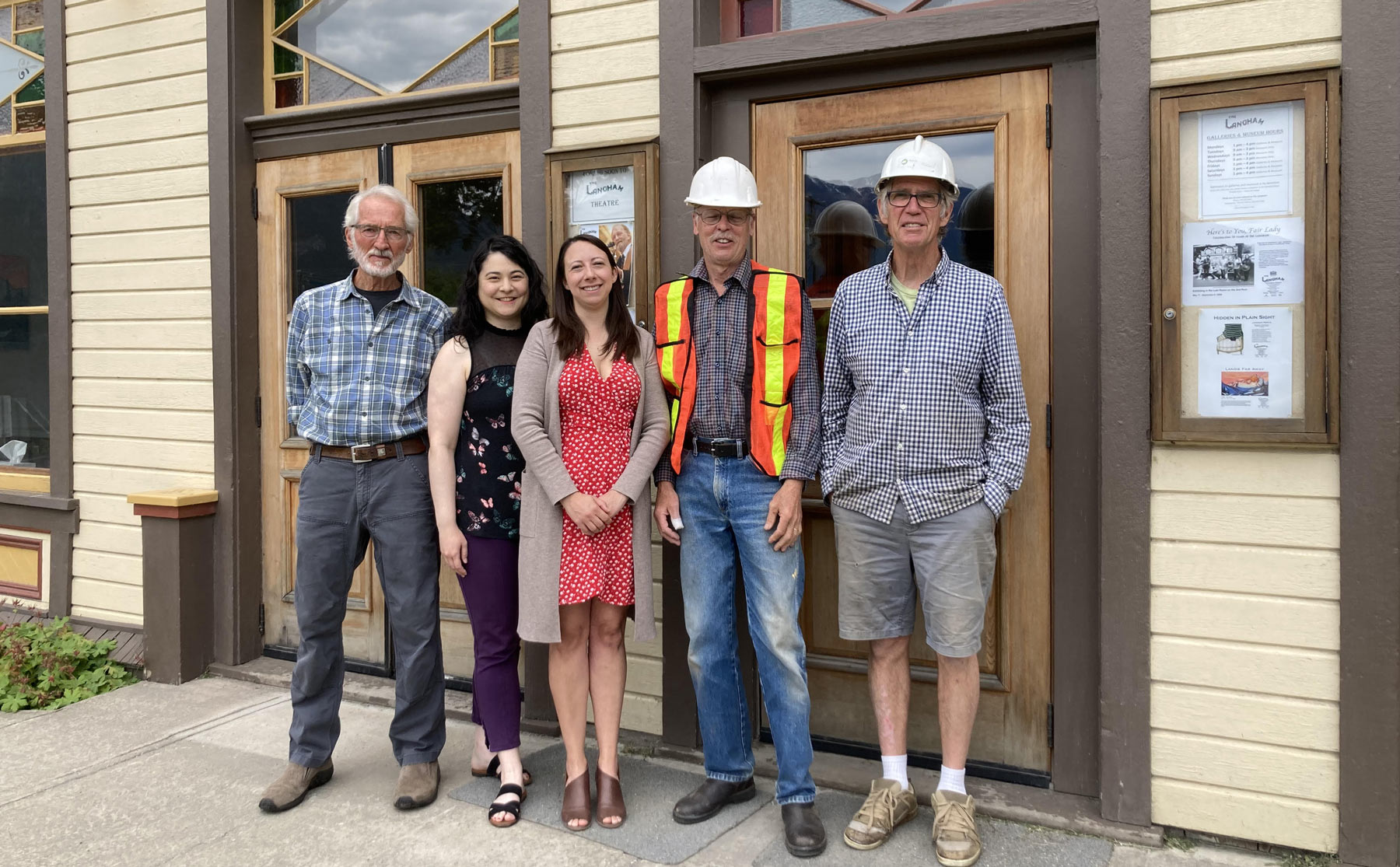
Kaslo | Langham Cultural Society
The Langham Restoration & Museum Modernization
The Langham Restoration and Museum Modernization project is a comprehensive initiative aimed at preserving and enhancing the historical significance of The Langham, a cherished heritage site. The project encompasses interior renovations, much-needed building updates, and a refresh of the museum exhibits including modernization and content expansion.
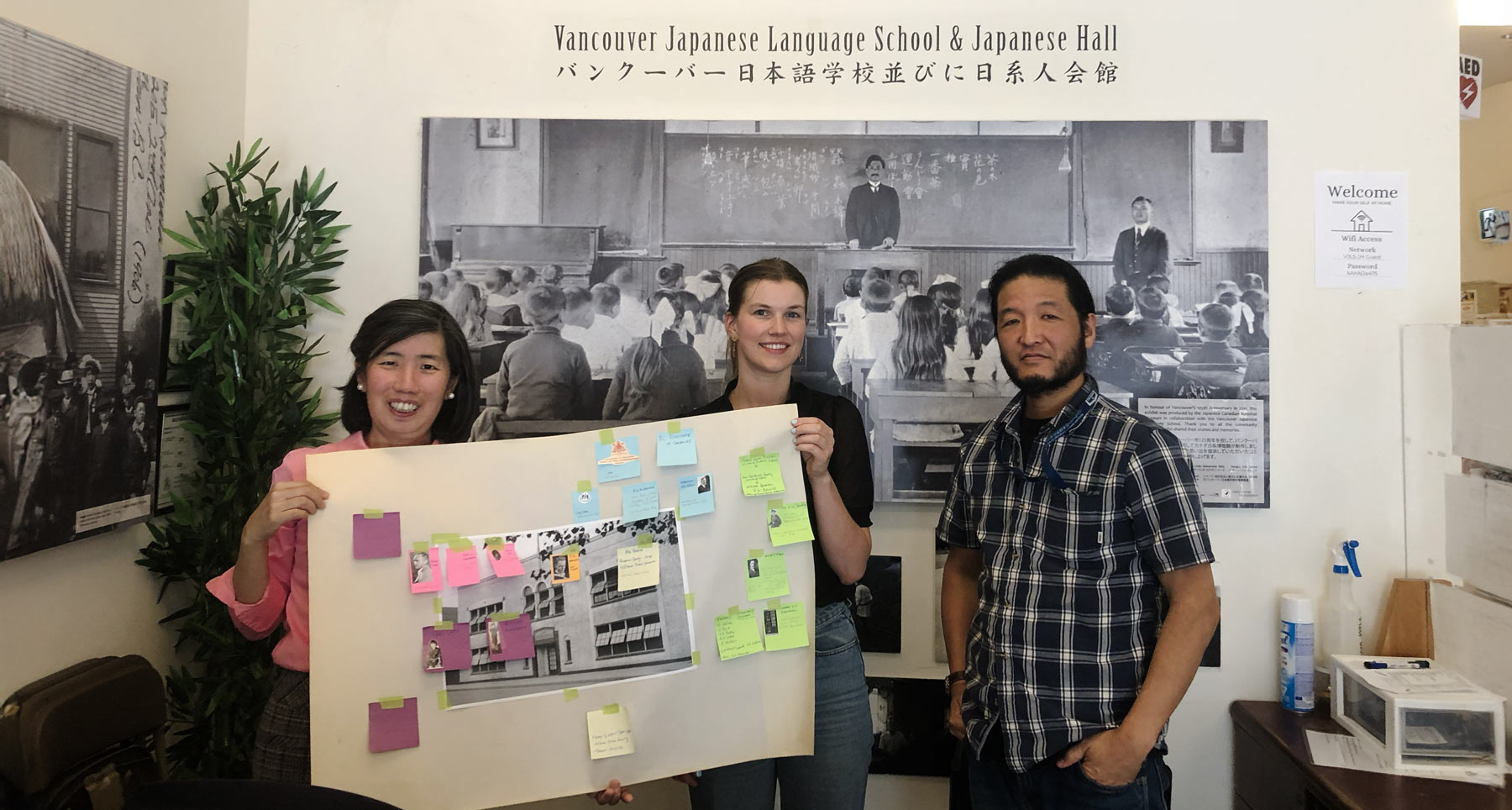
Vancouver Japanese Language School
Historic Vancouver Japanese Language School and Hall Interpretive Centre Project
「晩香坂」日本語学校並びに日系人会館のインタープリティブセンター・プロジェクト
In 1906, the Vancouver Japanese Language School opened its first schoolhouse building. By 1942, it had grown to be the largest Japanese language school in BC with over 1,000 students. It had also become a vibrant community centre in the heart of the bustling Powell Street neighbourhood. Against all odds, it was able to hold on to the building during the Internment and then reclaim its 1928 building, which reopened in 1952. Celebrating its 120th anniversary in 2026, VJLS will launch its Interpretive Centre, Prevailing through Internment 「インターンメント」を乗り越えて, to tell these moving stories of cultural identity, state oppression, integrity, perseverance and hope.
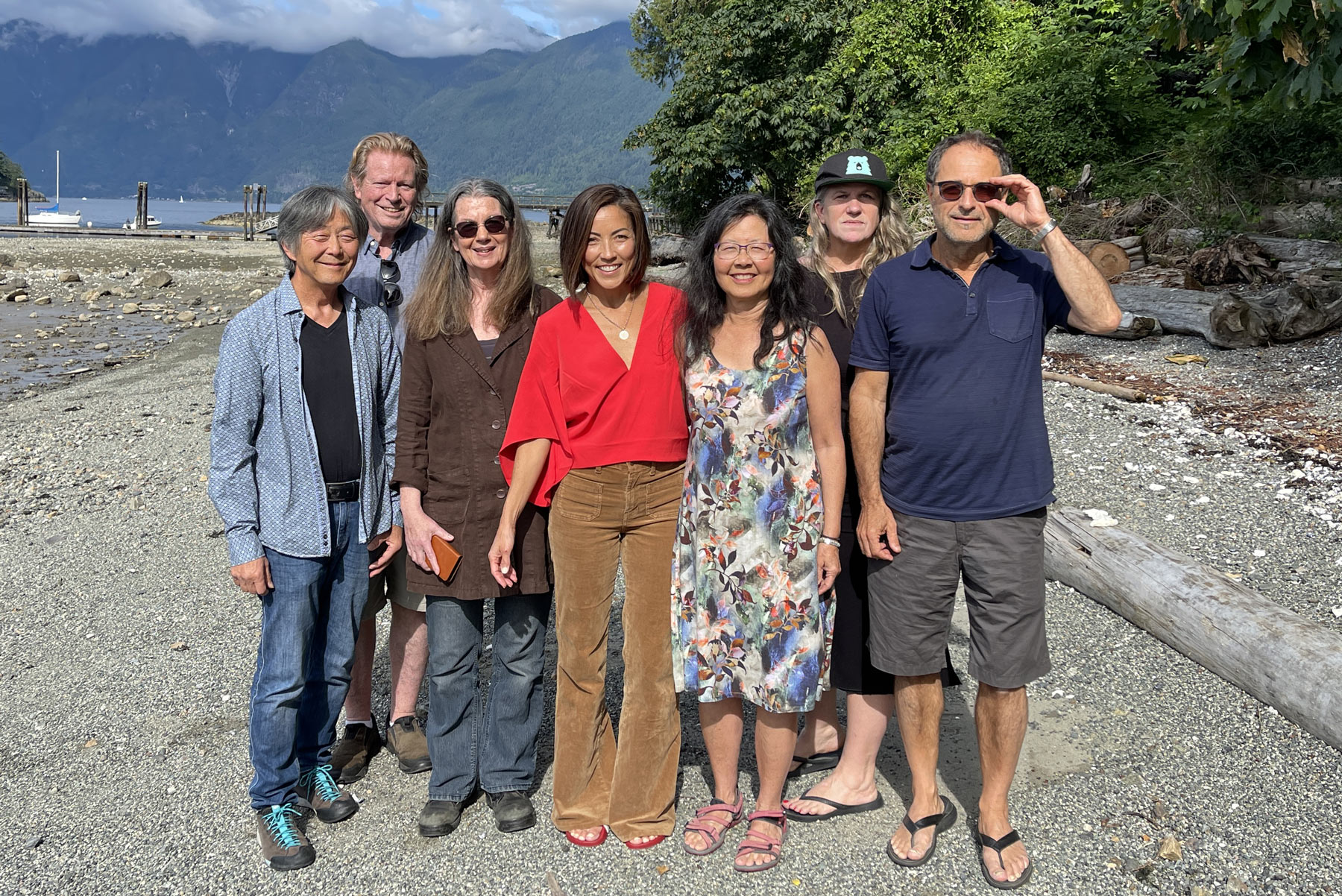
Bowen Island Museum & Archives
Honouring the Lives of Japanese Canadians on Nex̱wlélex̱m (Bowen Island) & Átl’ka7tsem (Howe Sound)
Through Understanding the Past, Inspiring Action Today, Creating Hope for the Future, visitors are invited to explore the lives of Japanese Canadians on Nex̱wlélex̱m and Átl’ka7tsem prior to their forced removal during World War II in a modest timber structure looking out to Deep Bay. The story will be told through interpretive signage with QR codes leading to further historical research revealing the legacies of the men, women and children who lived, worked and played here. The site is located within easy walking distance to the ferry, the Cove and the schools.
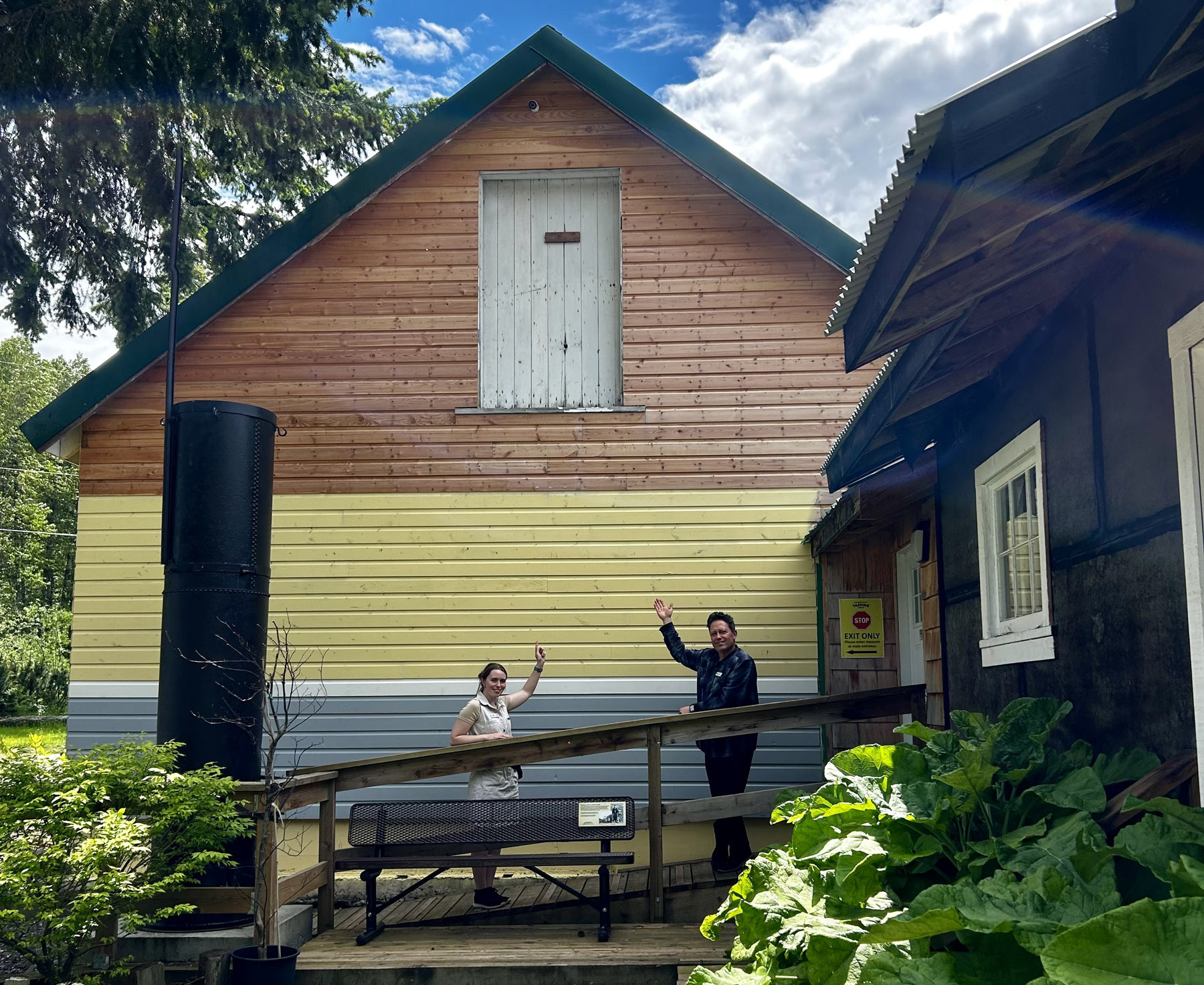
Sunshine Valley | Tashme Historical Society
Tashme Museum Research Centre & Archives Project
The Tashme Museum, which opened in 2016, is a thriving museum for the collection and preservation of the history of the Tashme internment camp. It serves the descendants of Tashme internees, researchers of Japanese Canadian history, tourists to the Hope area, and the general public. The heritage conversion of the original Tashme butcher shop (now the Tashme Museum) will provide a much-needed storage facility for a growing collection of archival materials and working space for visitors to conduct research and education.
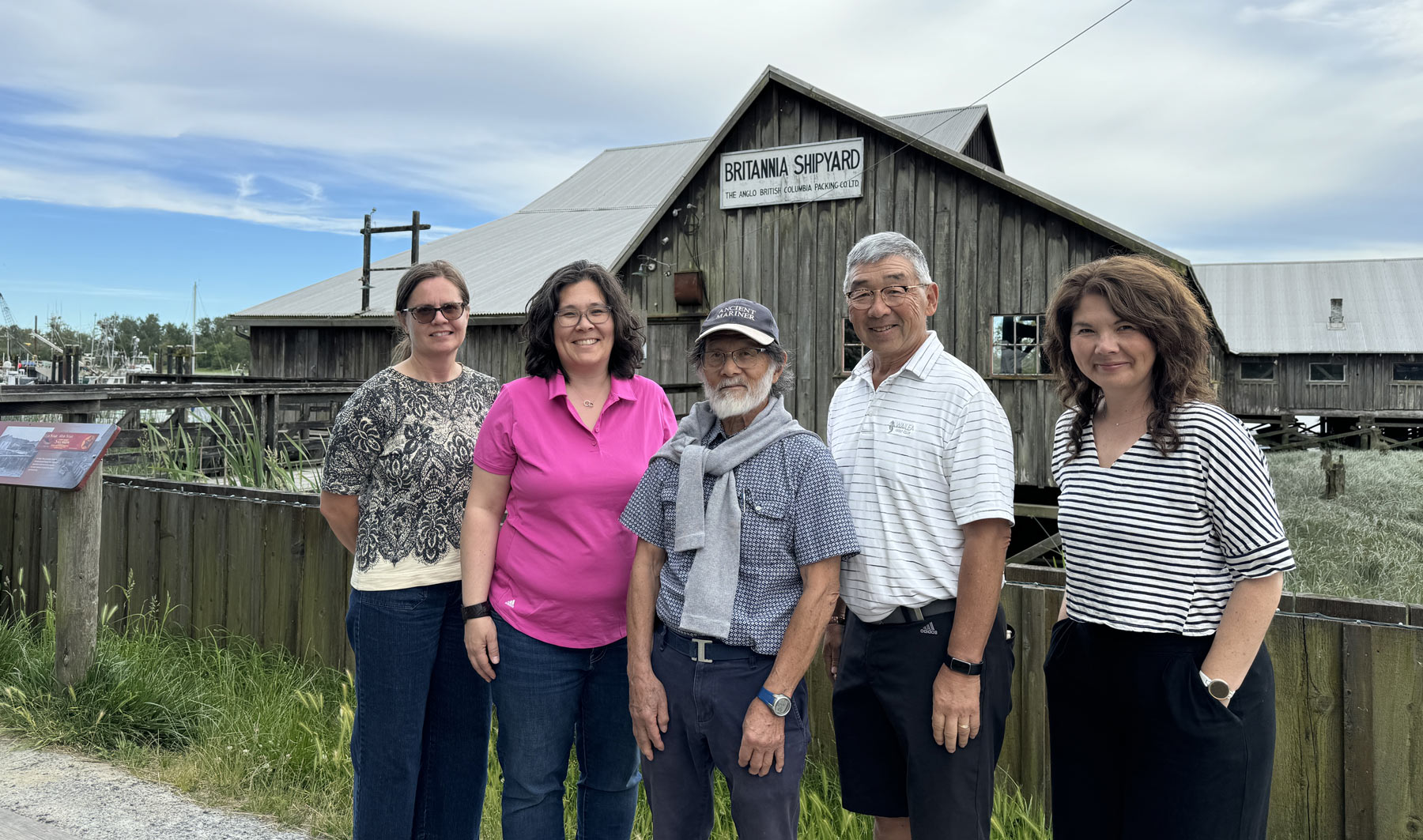
City of Richmond
Japanese Canadian Boat Builders Exhibit
This project is to create an exhibit sharing the history of Steveston’s Japanese Canadian boat builders at the Britannia Shipyards National Historic Site. Based on research and stories gathered from Canada’s Nikkei community, the exhibit will offer informative and immersive experiences that share the story of these unique West Coast craftsmen – their families, businesses, and the remarkable fishing boats they created.
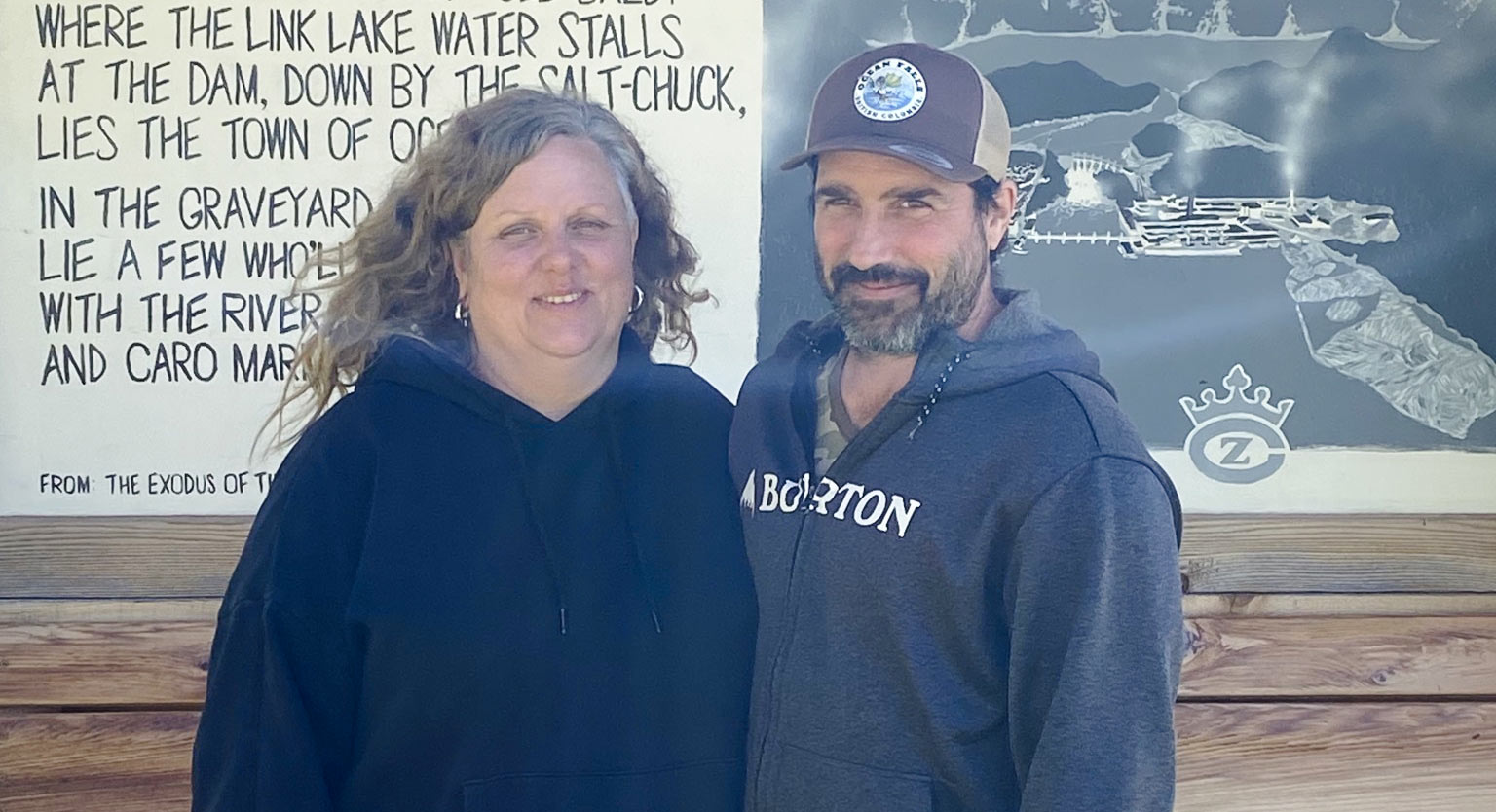
Ocean Falls Improvement District
Commemoration of Japanese Canadians of Ocean Falls
The project promotes awareness of the Japanese Canadians who lived and died in the bustling West Coast mill town that was Ocean Falls before and during wartime. The project will begin at the Cemetery where Japanese grave sites will be identified, marked and revitalized. A commemorative wood bridge will be a feature of the cemetery joining two sections together. In a separate location close to where the Japanese Canadians lived, a structure will be erected to commemorate the contributions Japanese Canadians have made to Ocean Falls and to Canada.
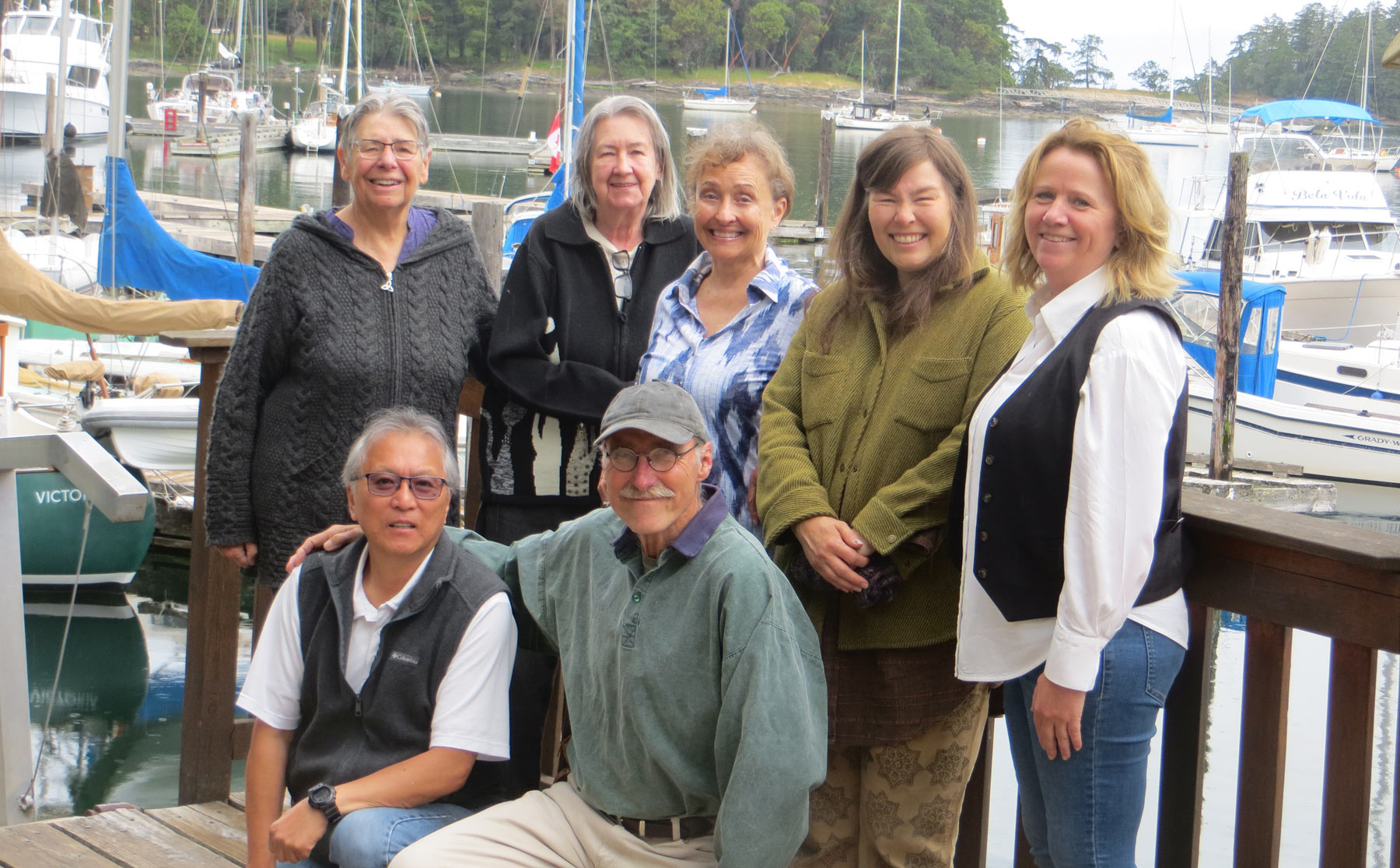
Gabriola Historical & Museum Society
Gabriola Japanese Canadian Legacies Projects
Omoide is a permanent exhibit at the Gabriola Museum. A miniature diorama of the Koyama Fishcamp and Sunrise Saw Mill will direct viewers to these historic sites on Gabriola. We are consulting with Mas Fukawa and Yosh Koyama, living descendants of two of the families we know of who lived and worked on Gabriola Island.
Gaman is a mobile exhibit at Pages Inn at Silva Bay. It is an interactive celebration of Japanese culture, craft and art showcasing the indelible effect of Japanese heritage in BC. The inspirations for this mobile display are the Japanese festival floats called dashi, and the ethos of gaman: to endure and persevere through adverse circumstances. It will feature the artistic diversity and craftsmanship on ‘the Isle of the Arts’ inspired by Japanese culture. This exhibit is an imgaginal representation of what our coastal communities could have been if Japanese Canadians hadn’t been sent away: what has been taken and what will be reclaimed.
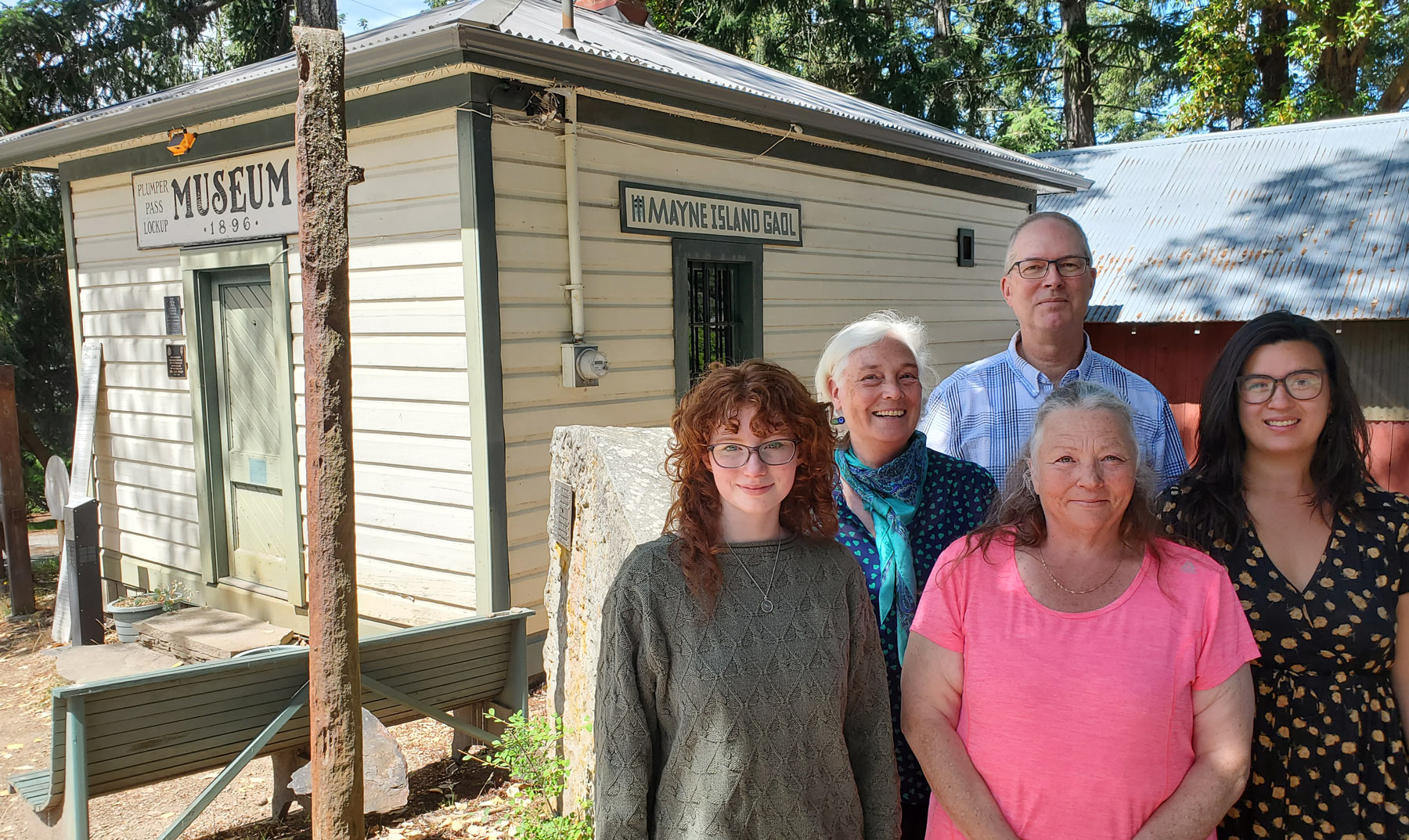
Mayne Island Agricultural Society
Mayne Island Japanese Canadian Legacies
The project aims to promote public awareness of Mayne Island’s Japanese Canadian history at three sites on the Island: through restoration work at the Japanese Memorial Garden, through information panels at the Miners Bay wharf and via an outdoor exhibit at the Mayne Island Museum. By promoting public awareness of Japanese Canadian history on Mayne we hope to honour these ancestors whose stories have been lost; remind us of who these people were, and tell the difficult story of their racist treatment. Only by telling this story can we begin to correct these wrongs.
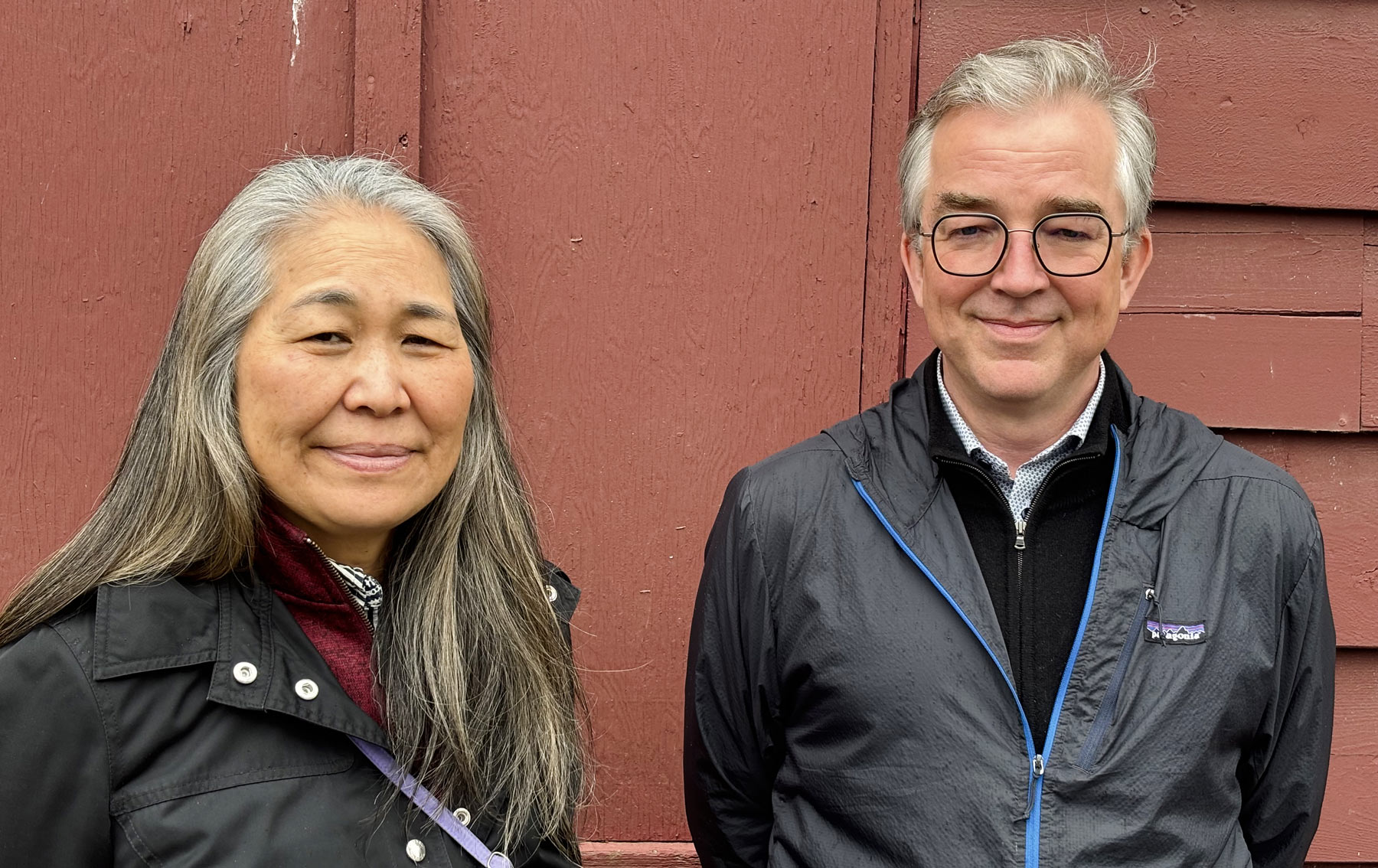
City of Mission
Centennial Park Interpretive Tea House
This project foregrounds the invisible history of Japanese Canadian families who once lived where an active park now exists. Inspired by the art of Japanese Tea House, this public amenity will serve as an interpretive/heritage location and a peaceful location for small gatherings. The interpretive information will focus on the contribution of Japanese Canadian families to the creation and growth of the farming and forestry industries in Mission, as well as commemorating the Mission Community Archives 1992 exhibition Rites of Passage, the inspiration for the tea house.
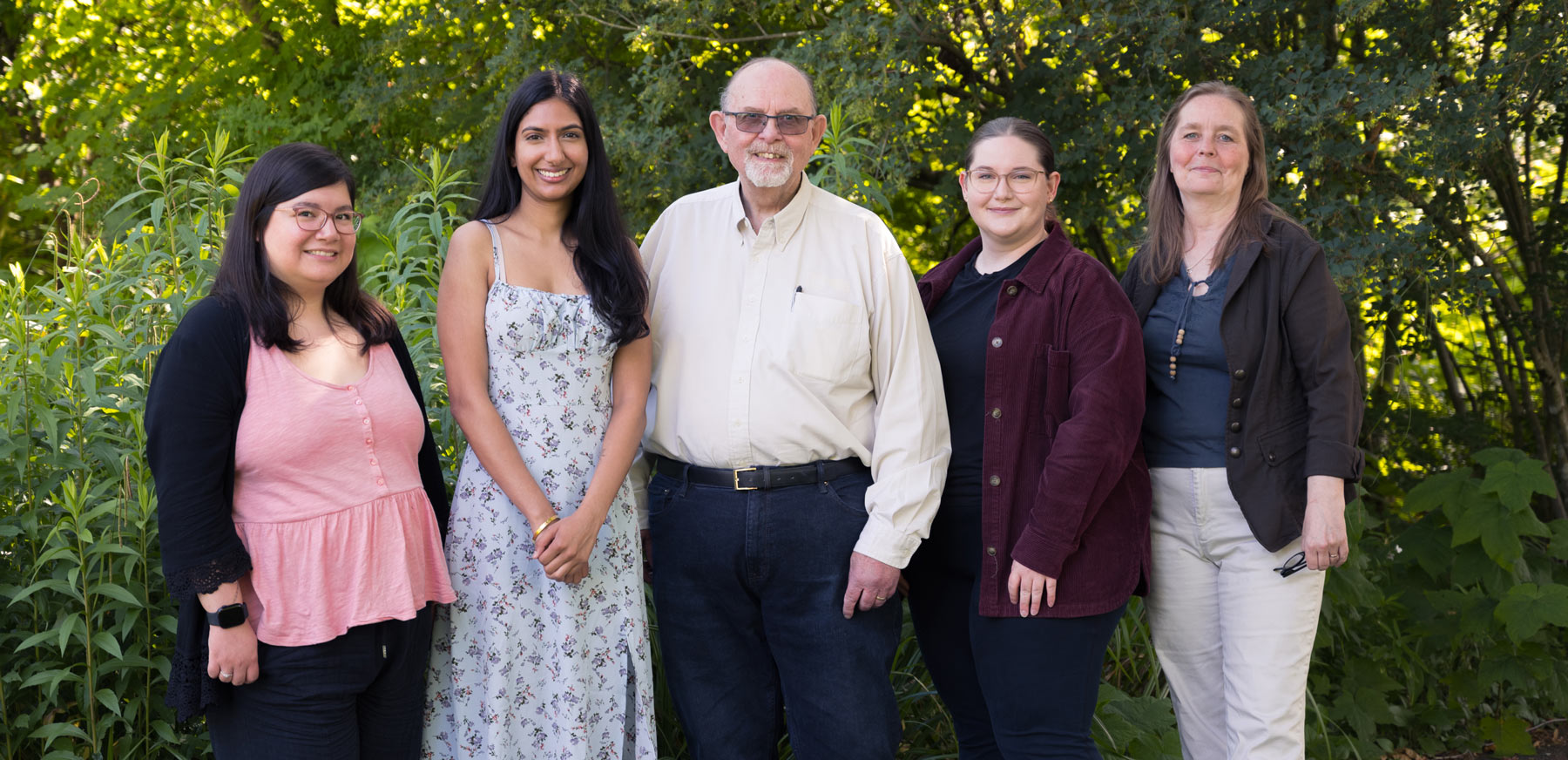
Heritage Abbotsford Society
Westridge Park Reflection Space
The project will commemorate Abbotsford’s Japanese Canadian community builders by designing and building a culturally sensitive reflection space in Westridge Park. The space will be located in an area which was once the heart of a thriving Japanese Canadian community.
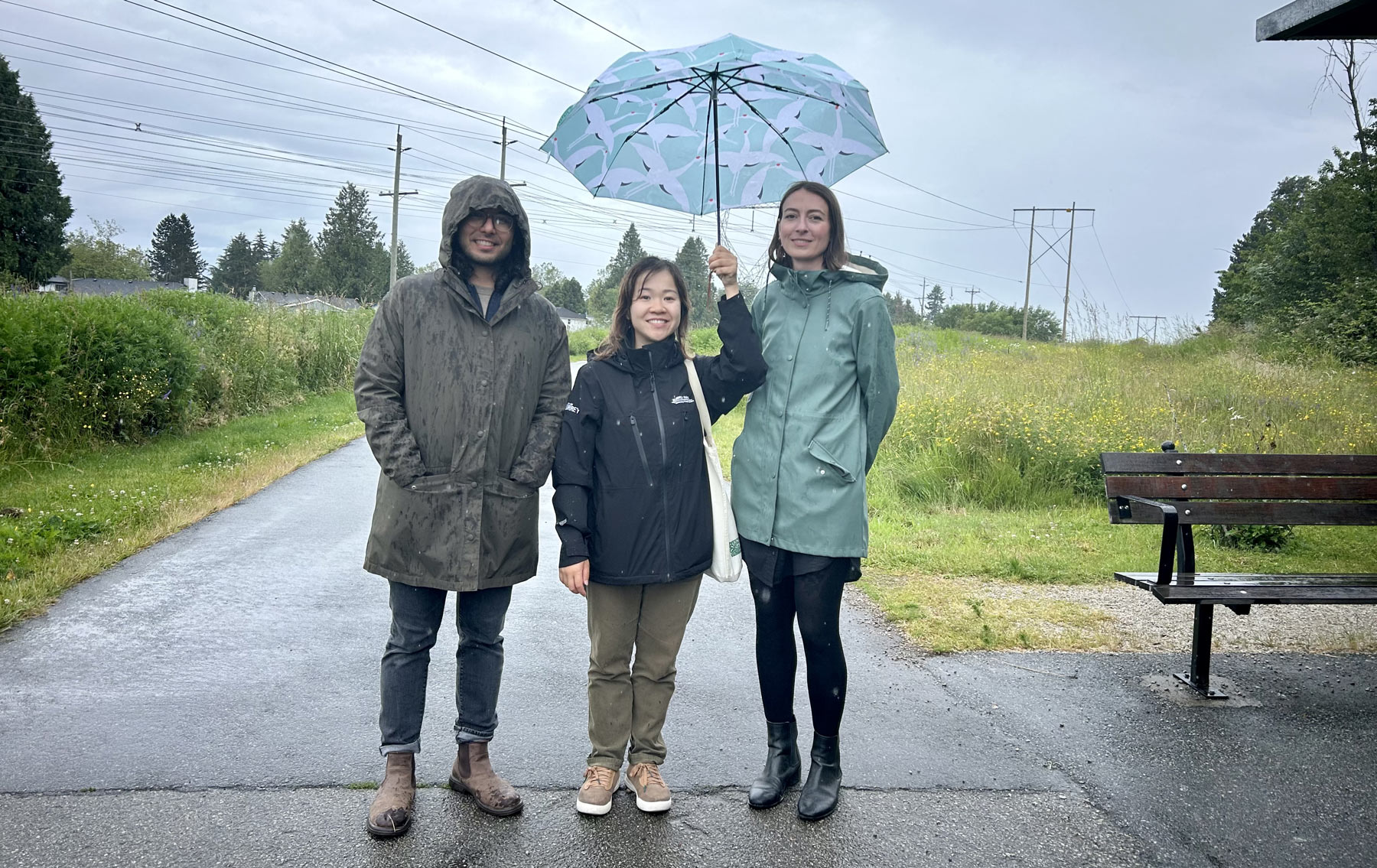
City of Surrey
Commemorating Surrey’s Early Japanese Canadians
This multi-faceted public heritage project connects residents to the legacies of Surrey’s early Japanese Canadians and confronts the injustice of their uprooting, dispossession, and internment. Surrey’s historic Strawberry Hill neighbourhood takes its name from local Japanese Canadian berry farmers who were central in building the area’s agricultural and community resources. Three points of community connection – a commemorative plaza, a park feature, and a permanent photo display – will bring early Japanese Canadian experiences in Surrey to the forefront, amplifying both their significant community contributions and the injustice of their dispossession and internment in World War II.
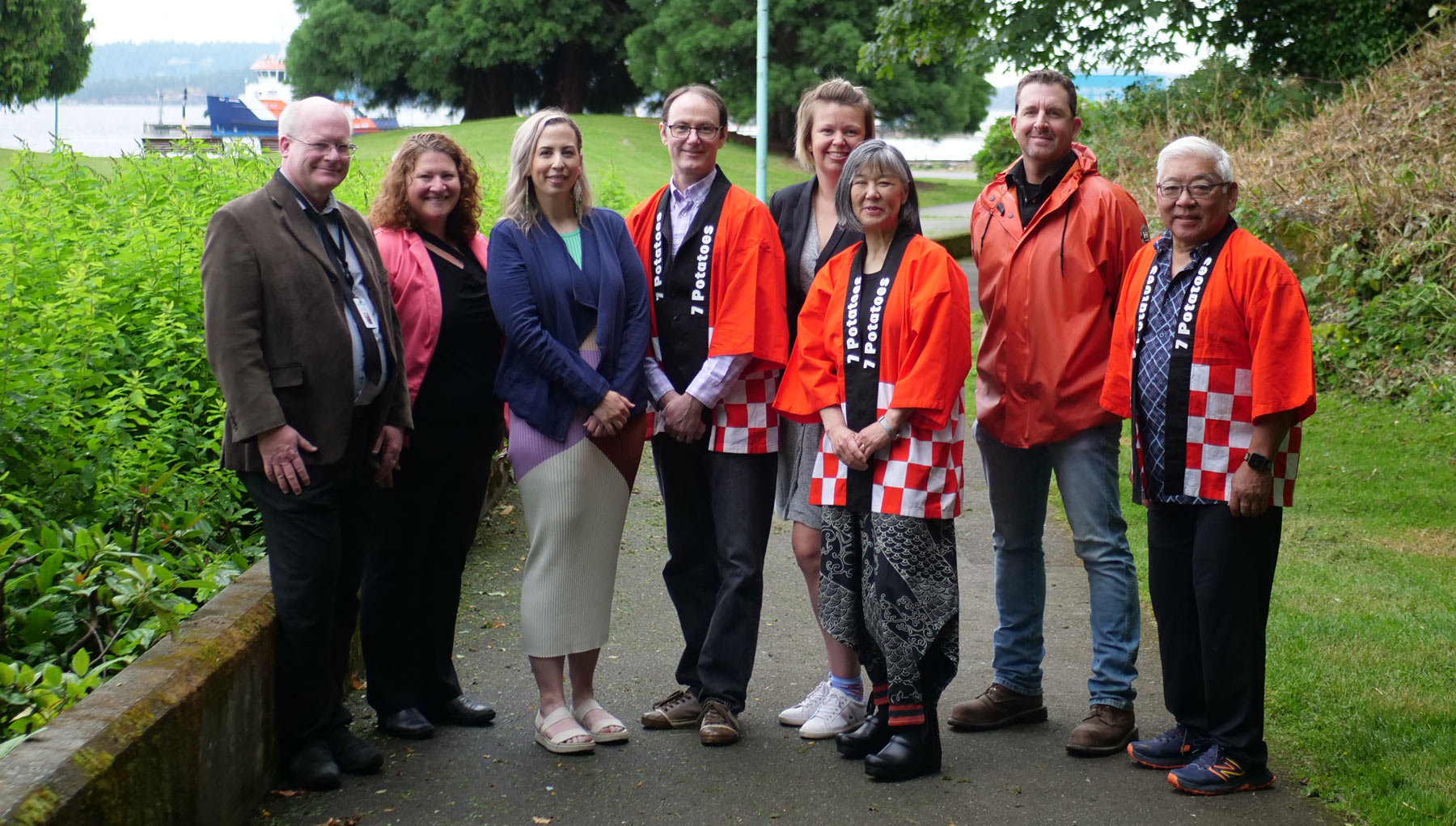
City of Nanaimo
Nanaimo Japanese Canadian Heritage Garden
This project will create a peaceful public space that reflects the history of the Japanese Canadians who lived in Nanaimo and Mid-Vancouver Island who were forcibly uprooted and displaced by the Canadian Government in 1942, including the many herring salteries and the bustling community along Stewart Avenue. The project will be located in Maffeo Sutton Park which is very close to the area where Japanese Canadians settled in the early 1900s. It will be a place where people can come together to share, remember, learn, and reflect on the historical wrongs and injustice as well as celebrate the continued Japanese Canadian culture that exists in Nanaimo today.
Back to directory
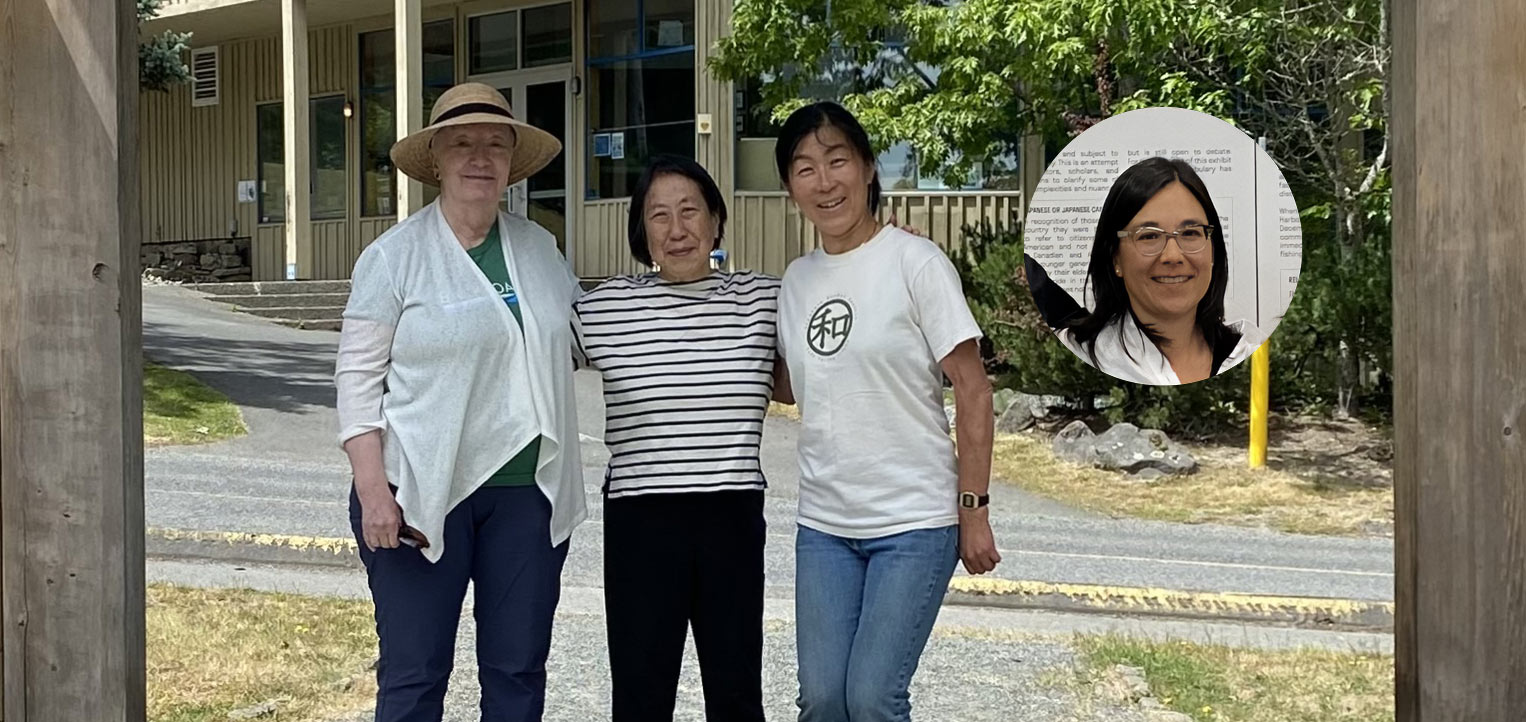
Japanese Garden Society of Salt Spring Island
Japanese Canadian Memorial Story Project
To celebrate the resilience of the pre-war Japanese Canadian community on Salt Spring Island and in the Southern Gulf Islands, the Japanese Garden Society will erect four new interpretive panels that honour the vibrant Japanese Canadian heritage of Salt Spring Island and the Southern Gulf Islands. Two panels introduce the story of the Murakami family, whose legacy is etched into the island’s history, and the new stories of Japanese Canadian families who used to live on the island before uprooting. Two panels visually present significant heritage sites and stories behind them on Salt Spring Island and in the Southern Gulf Islands. Another information panel along Lower Ganges Road highlights the once-thriving community of Little Japan in the Sharp Road and Norton Road area. This project ensures that the stories of these resilient families are shared with locals and visitors, preserving their memory and contributions and addressing the past’s wrongs for future generations.
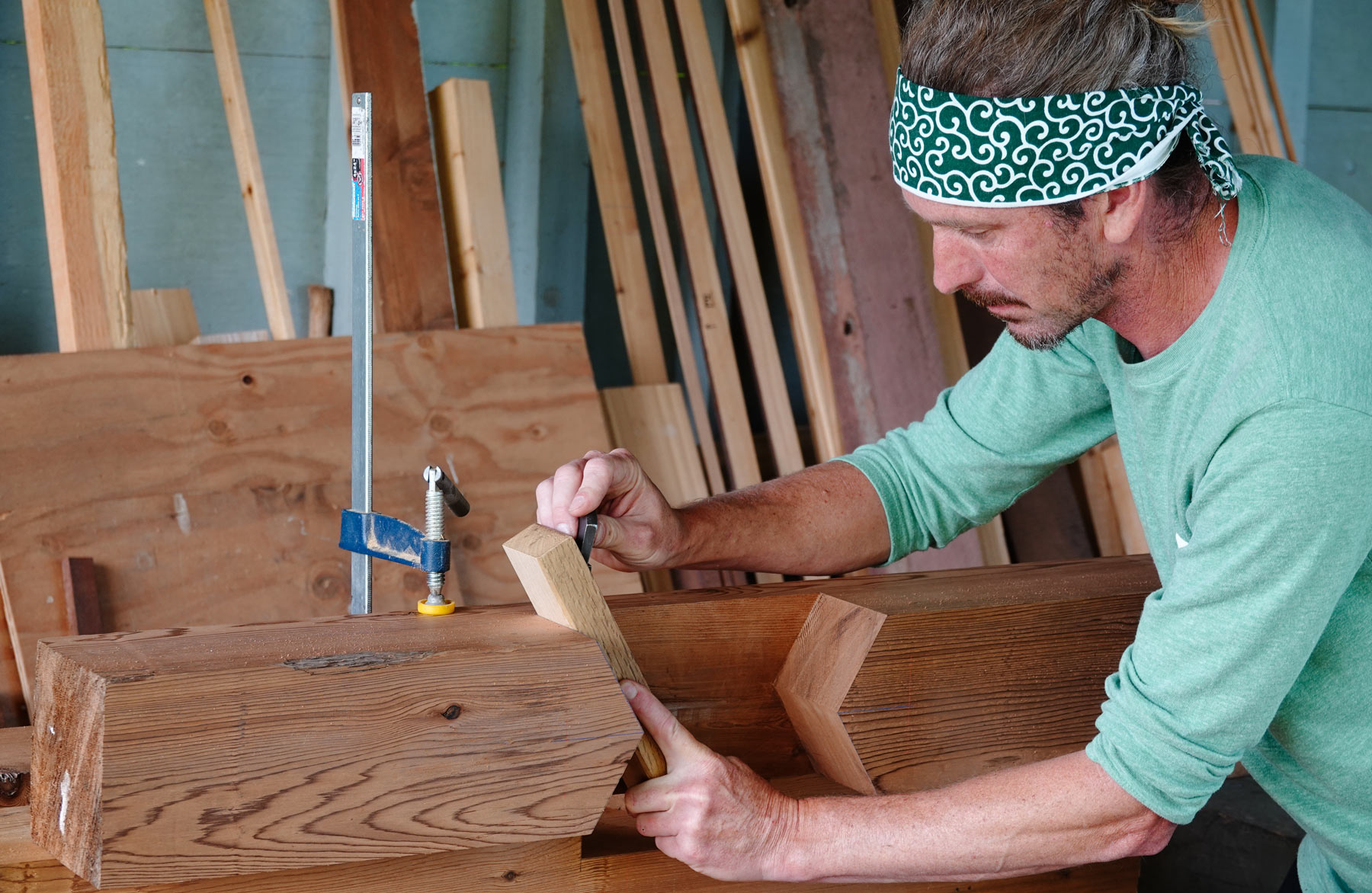
Ucluelet & Area Historical Society
The Ucluelet Japanese Canadian History Pavilion
A permanent open-air Japanese Canadian History Pavilion will be in proximity of one of the six pre-war Japanese Canadian settlements in Ucluelet, BC, serving to increase the awareness and understanding of the Japanese Canadians’ history in Ucluelet. This historical interpretive pavilion site overlooks the only harbour-side Japanese Canadian settlement where houses remain to this day. This site illustrates the importance of the centrality of the harbour to Japanese Canadian fishing families. The salmon troller was their most important asset, kept close to home for efficient access.
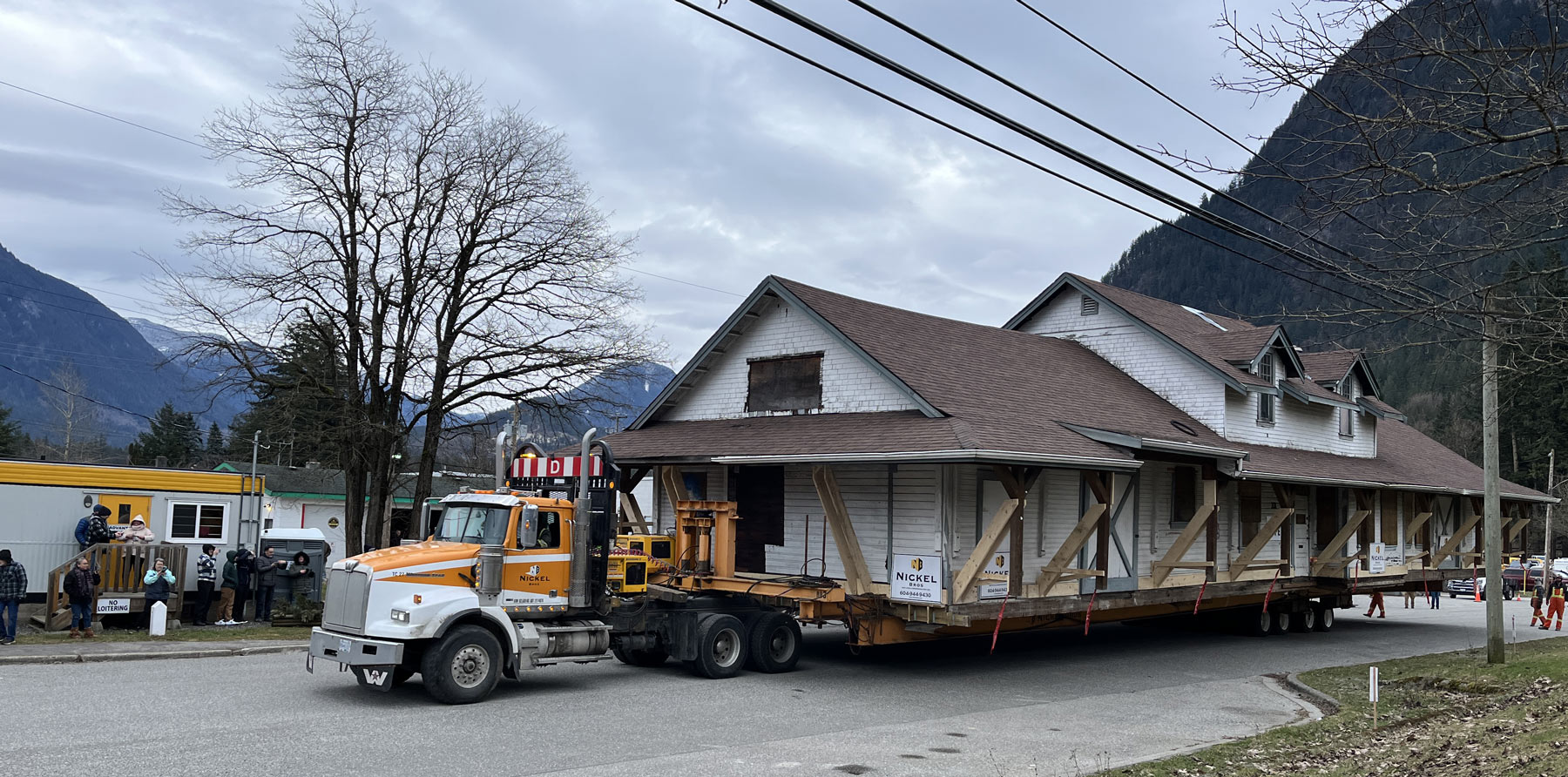
Hope Mountain Centre for Outdoor Learning | Hope Station
Historic Hope Station Legacy Platform
A large, educational platform deck will be attached to the historic Hope Station, serving as the access point to the building that saw the arrival of approximately 8,000 Japanese Canadian exiles in 1942. This new, 6,000 sf wrap-around deck will tell the Japanese Canadian internment story with a focus on the seven roadcamps between Hope and Princeton, and also the historical pretext and postwar climate. The project aims to serve as a memorial to the Nikkei men who built the highway, and an opportunity for all affected Japanese Canadians to find healing through the transformation of place, and the associated stories and narratives.
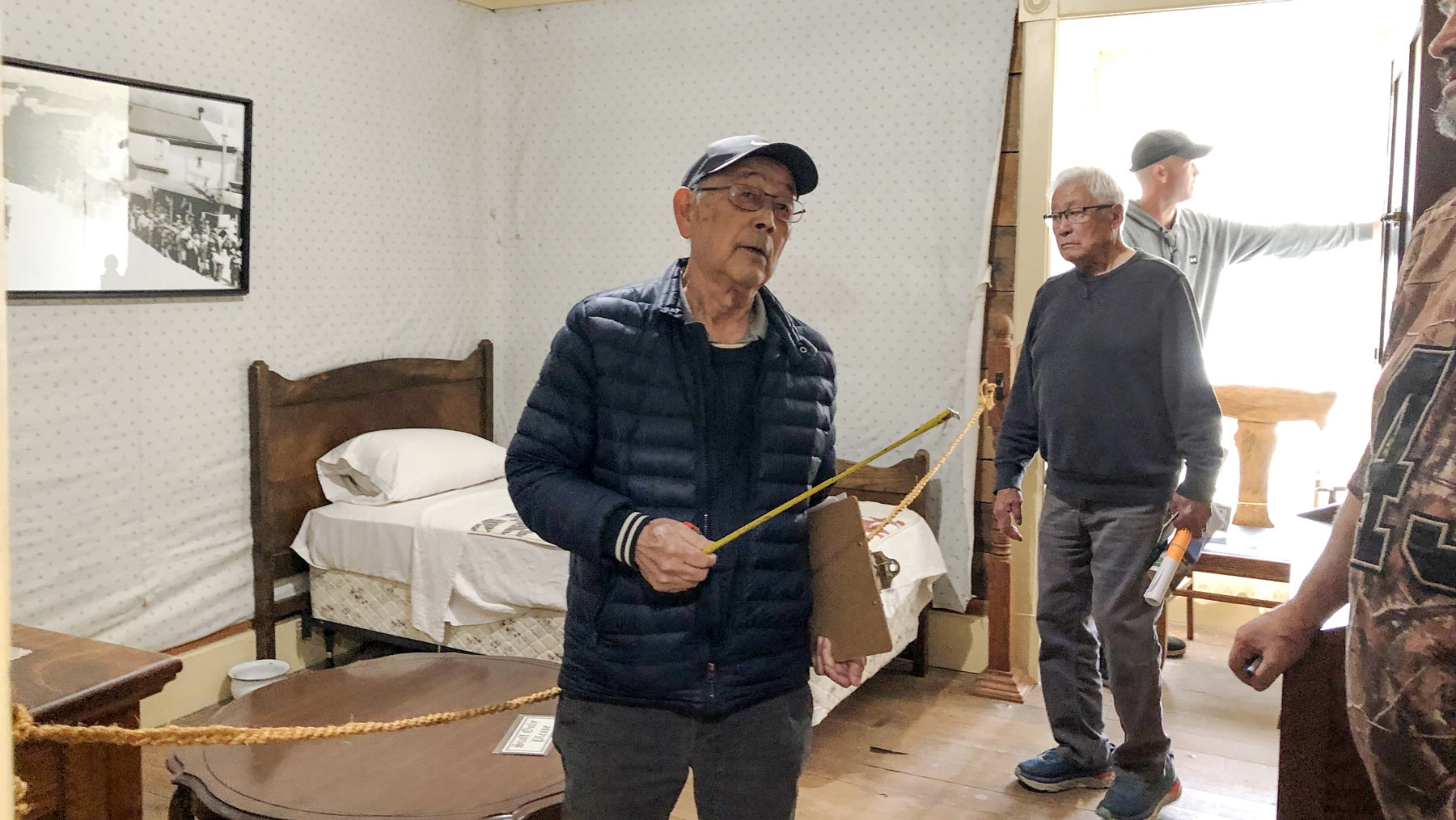
District of Lillooet | Miyazaki House
Miyazaki Heritage House Rehabilitation and Storytelling Project
This project ensures the historic 150-year-old-heritage house showcasing Dr. Miyazaki’s legacy and Internment-era stories will live on for future generations. Consisting of major structural capital improvements and transformative upgrades for modern-day use, the heritage rehabilitation will bring the past to the present. This will ensure physical and financial sustainability of the house as a thriving community hub and event locale. In addition, the house will launch two storytelling exhibits: Dr. Miyazaki’s life story and the stories of the East Lillooet Internment camp and self-supporting sites.
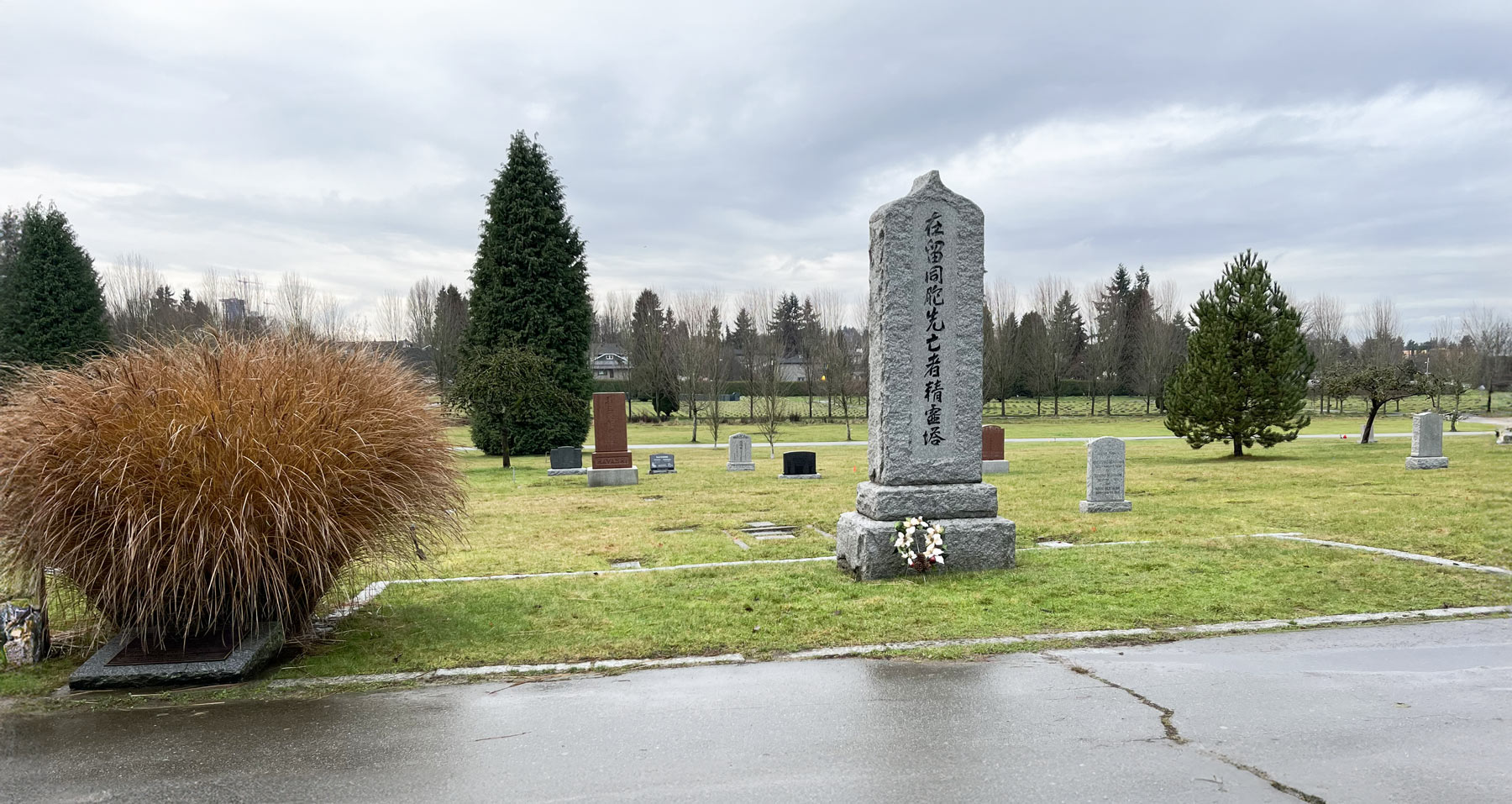
Vancouver | Mountain View Cemetery
Restorative Commemoration
This project acknowledges the importance of Japanese heritage at Mountain View Cemetery by restoring and preserving early tombstones of Japanese Canadians.Archival photos depict tombstones of Japanese Canadians in their original form, with notable design attributes differing from tombstones in other sections of the cemetery. Early tombstones were constructed in the traditional upright Japanese style with traditional markings and layout. Many early tombstones are concentrated in a section of the cemetery, forming a distinct district of heritage for restoration.
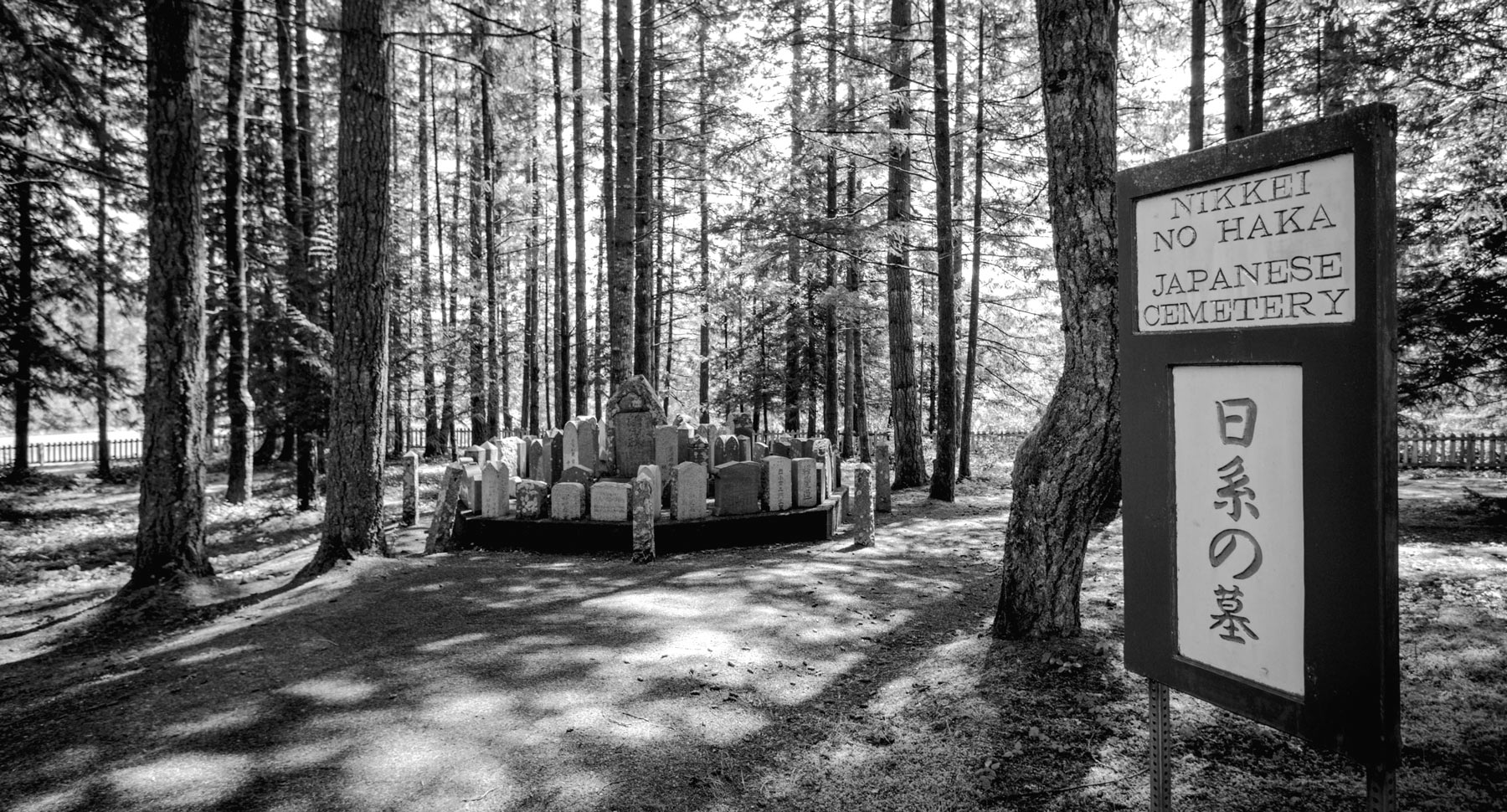
Village of Cumberland
Echoes of Community
A heritage interpretation project for Cumberland and Comox Valley Japanese Canadian community and business sites will centre on the themes of cultural resonance and community resilience, while encouraging personal contemplation and reflection. Select sites will share histories that connect to these themes.
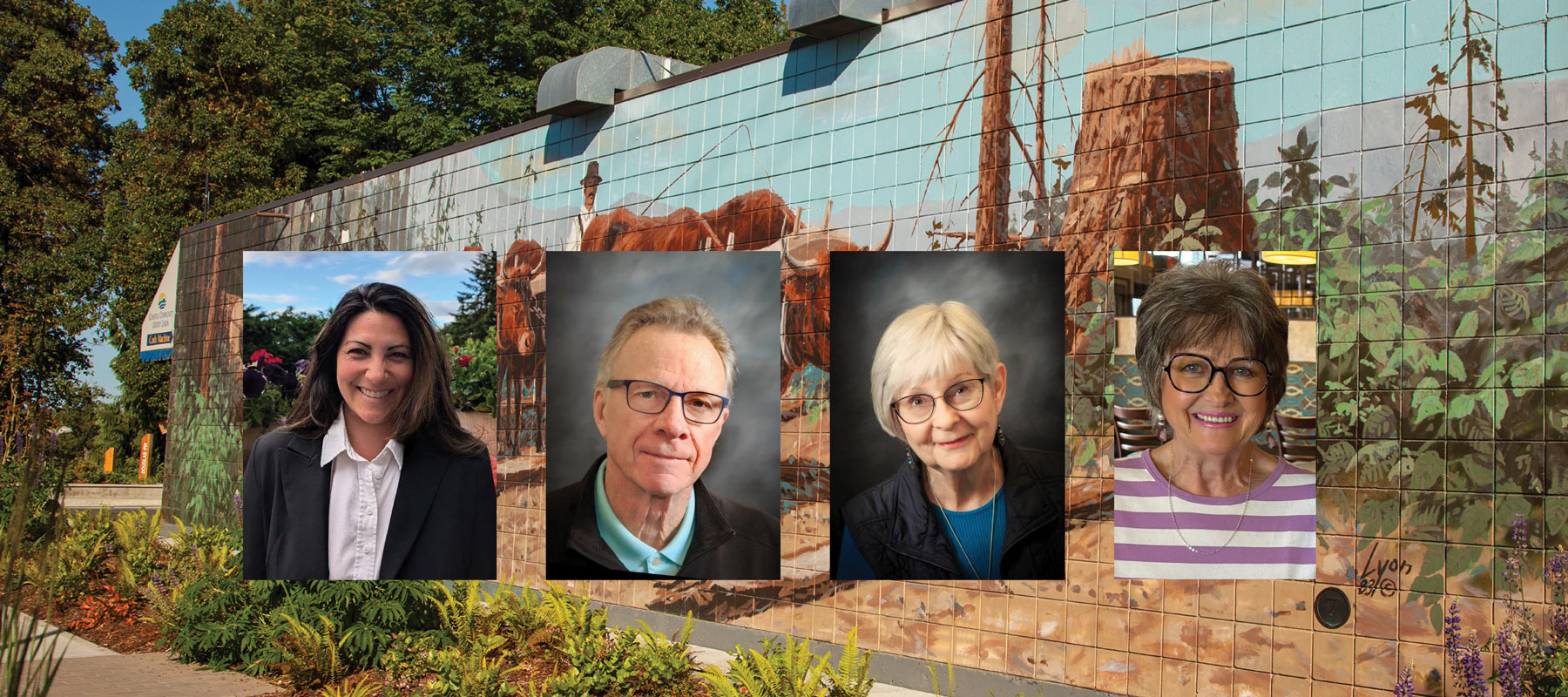
Chemainus Festival of Murals Society
Remembering and Honouring Japanese Canadians in Chemainus
This project consists of an art installation that remembers and honours the Japanese Canadians in Chemainus and depicts their contributions to the community. An 8 foot high x 16 foot long mural features a montage of three historical images: Japanese Canadians’ involvement in the fishing industry, the forestry industry, and in the community. The fishing industry portion depicts their large fishing fleet in the harbour and the forestry portion shows three men in the forest falling a tree. The community portion features an image of their hall, still standing today and used as a home. Featured in front of the hall are a teacher and students of the Language School. The mural will be protected by a culturally appropriate roof structure in three parts. The installation will be beautified by a welcoming entranceway, a path leading to the mural that branches off to both sides, where benches are placed for visitors to sit and view the mural. Landscaping to complement the entire installation will feature trees and shrubs.
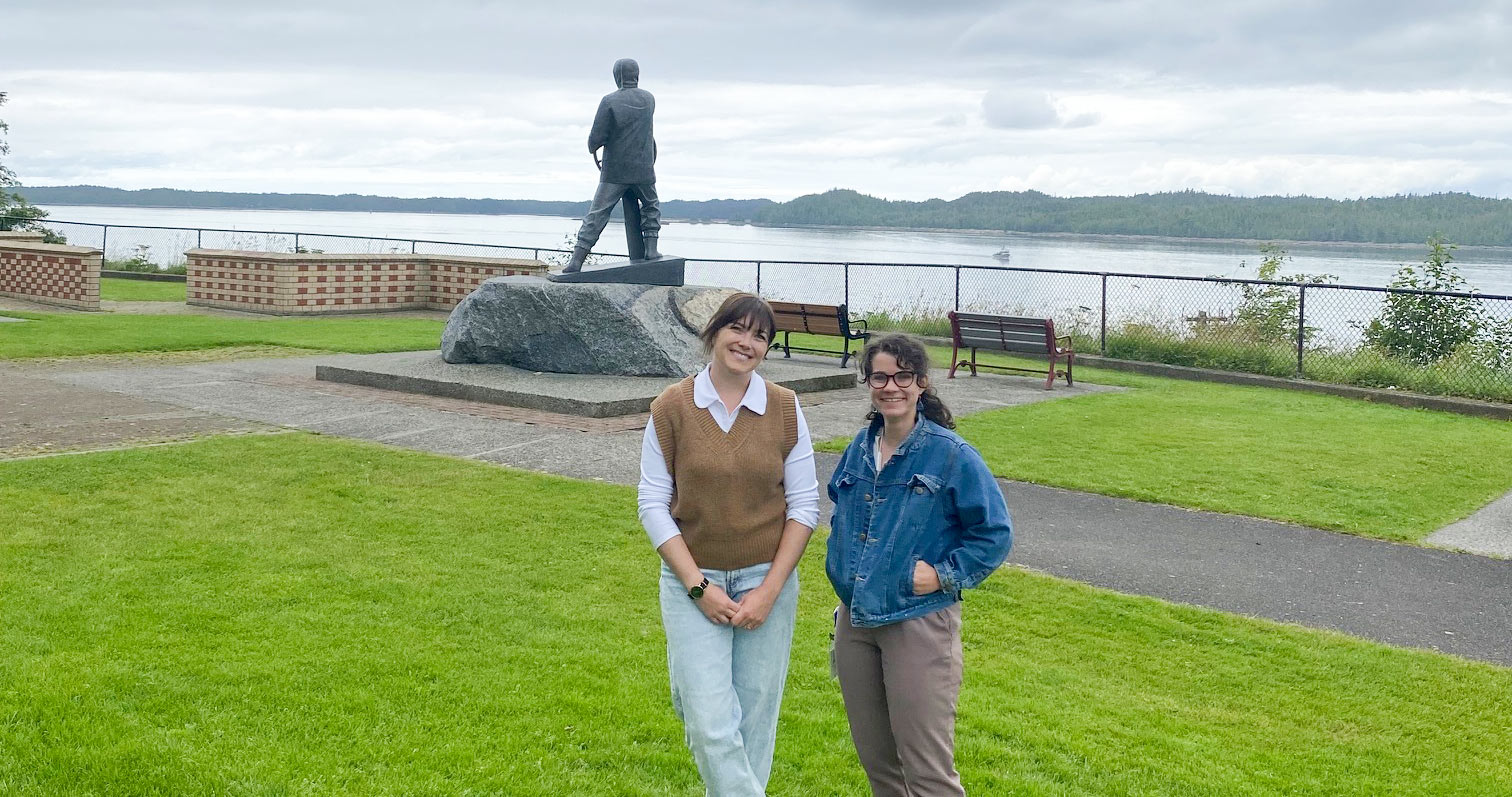
City of Prince Rupert
Honouring the Legacy of Local Japanese Canadians
This interpretive project is dedicated to Japanese Canadians who lived in the Skeena River Region in Pacific Mariners Memorial Park consisting of a covered, contemplative area that will be inclusive of narrative and historical information on the history of Japanese Canadians in the region, as well as the impacts of internment.
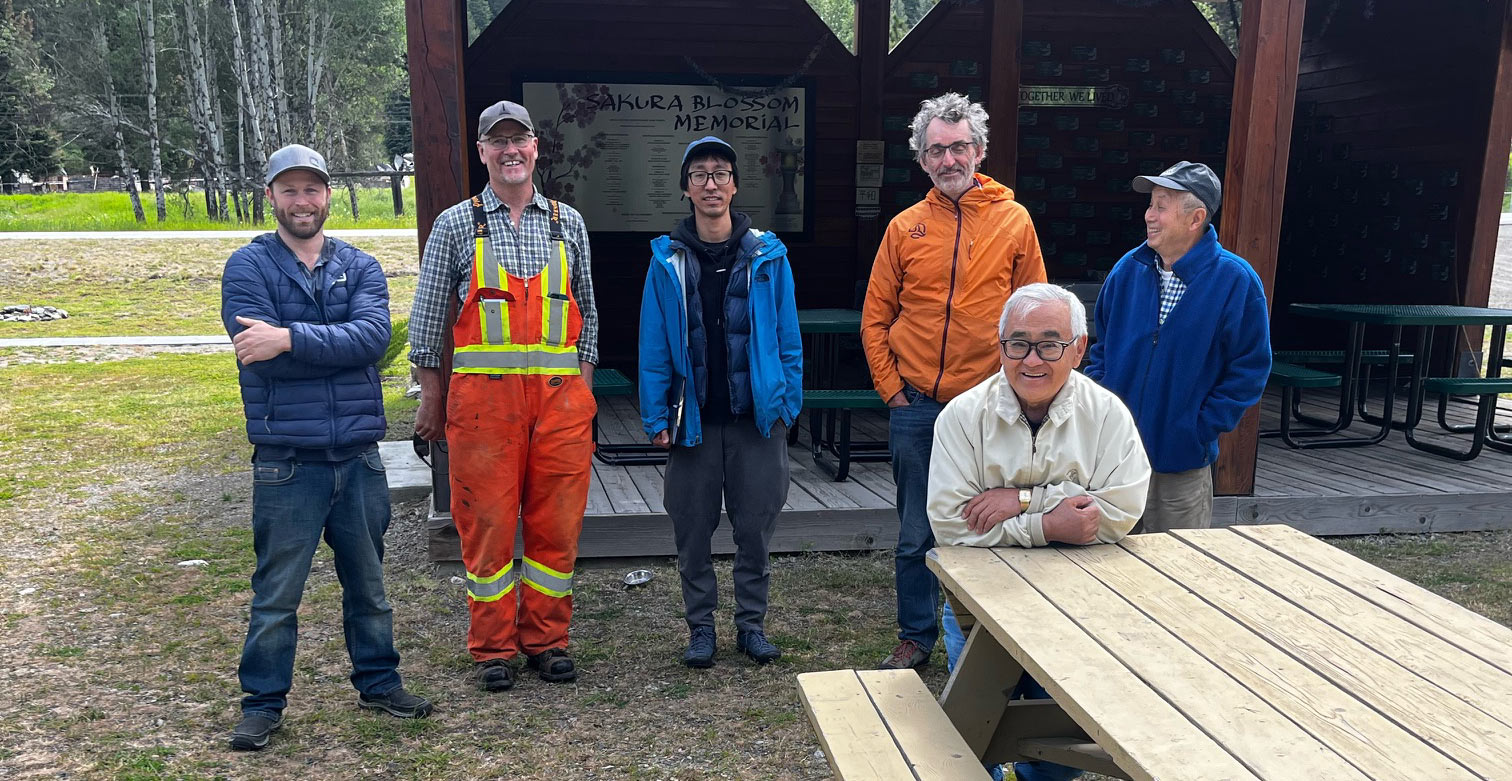
City of Greenwood
The City of Greenwood Japanese Garden Project
The project’s aim is to develop a tranquil Japanese garden tribute celebrating the area’s rich cultural heritage and serve as a tribute to the experiences of the Japanese Canadians who were interned during World War II. This serene space will feature traditional elements such as water features, rock formations and wooden structures along with landscaped flora, providing a peaceful retreat for residents and visitors alike to foster community engagement.
